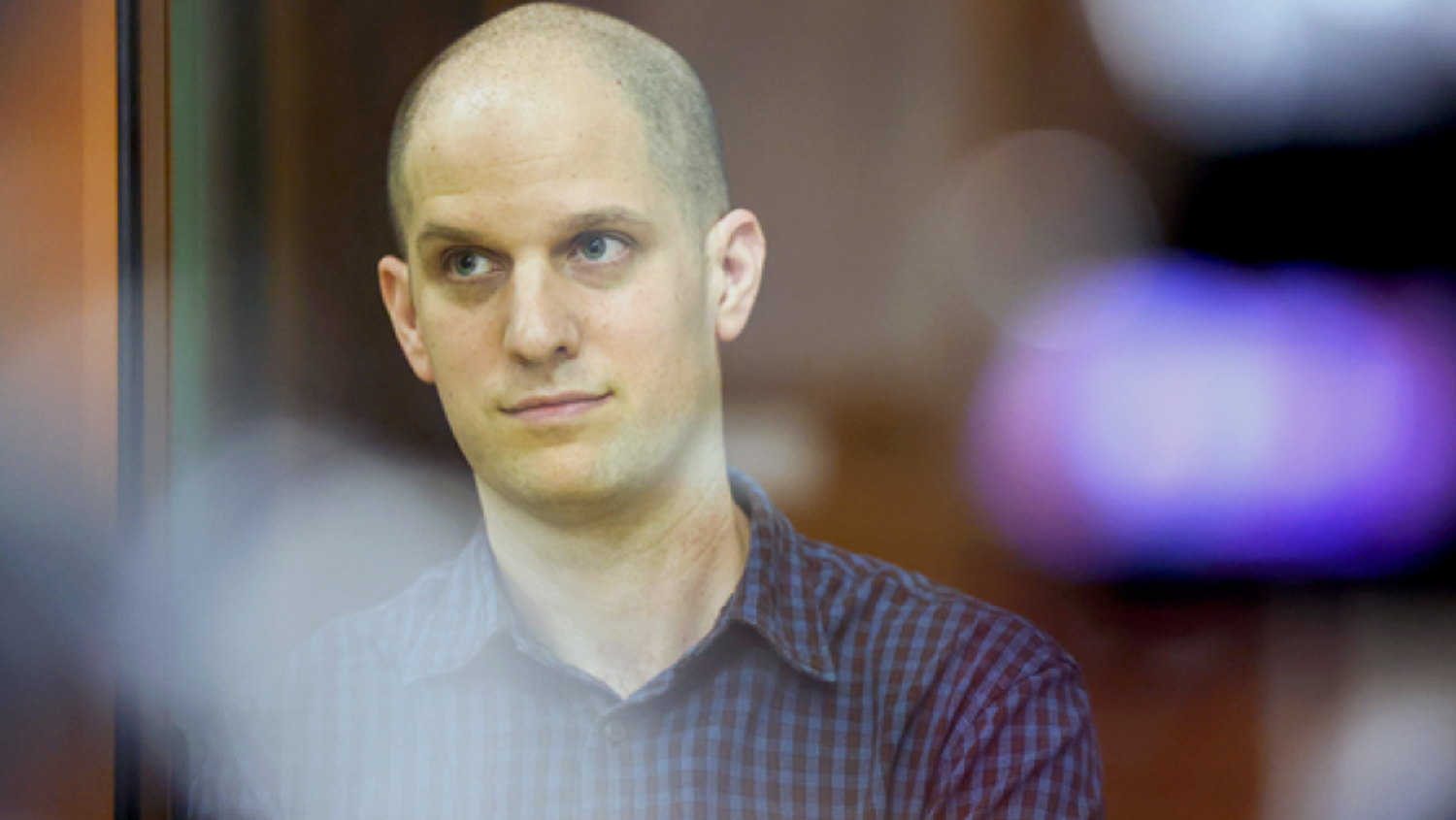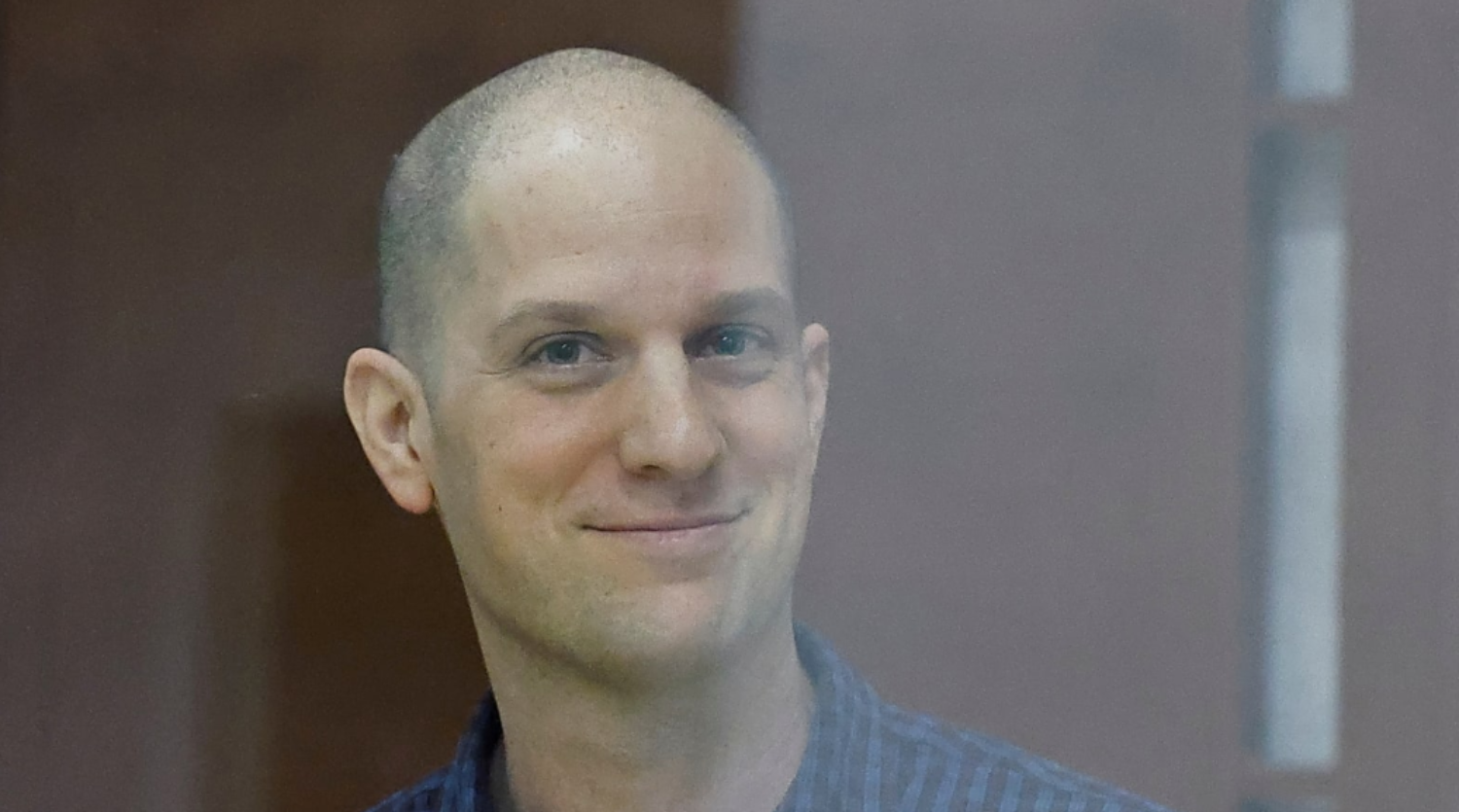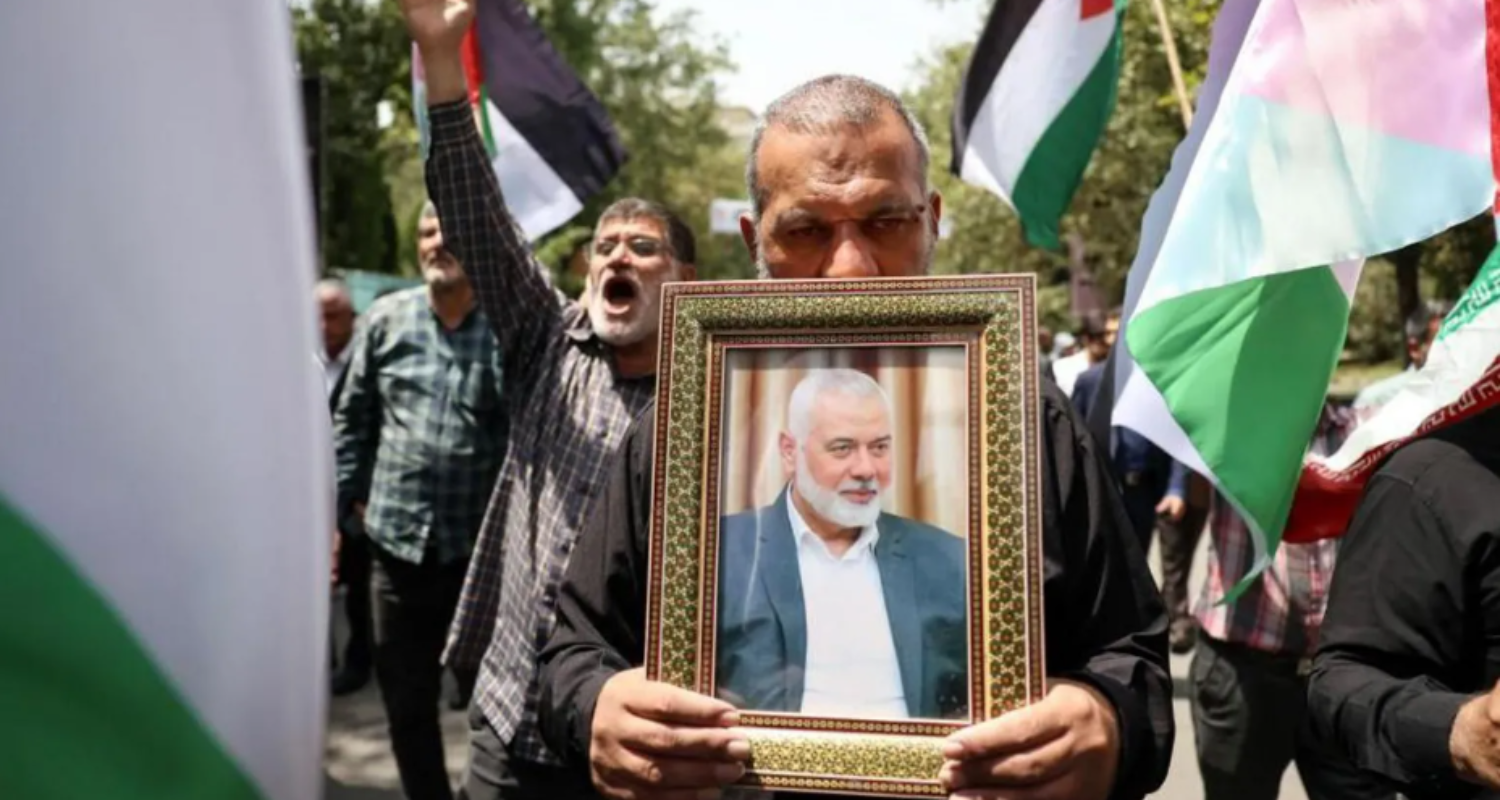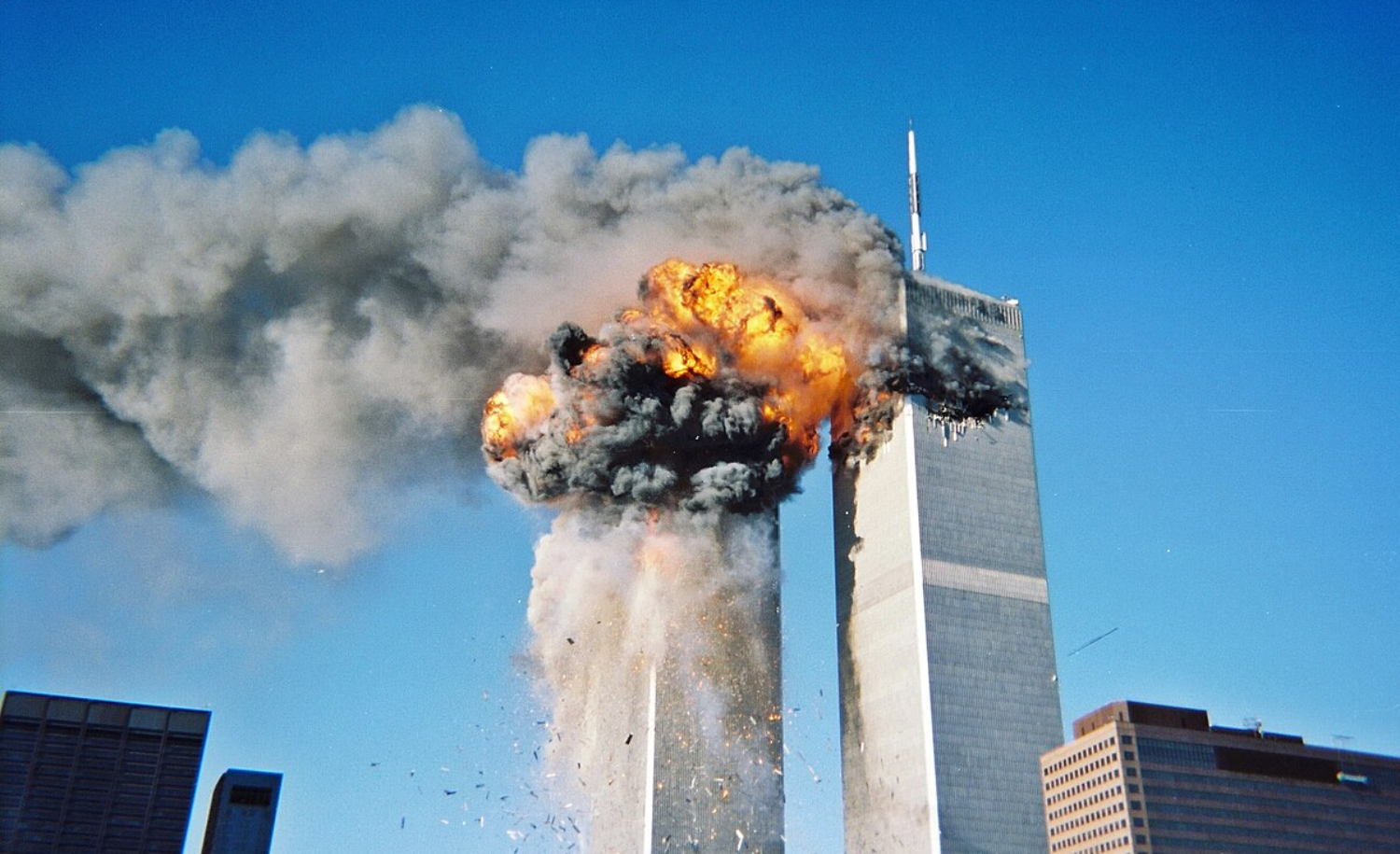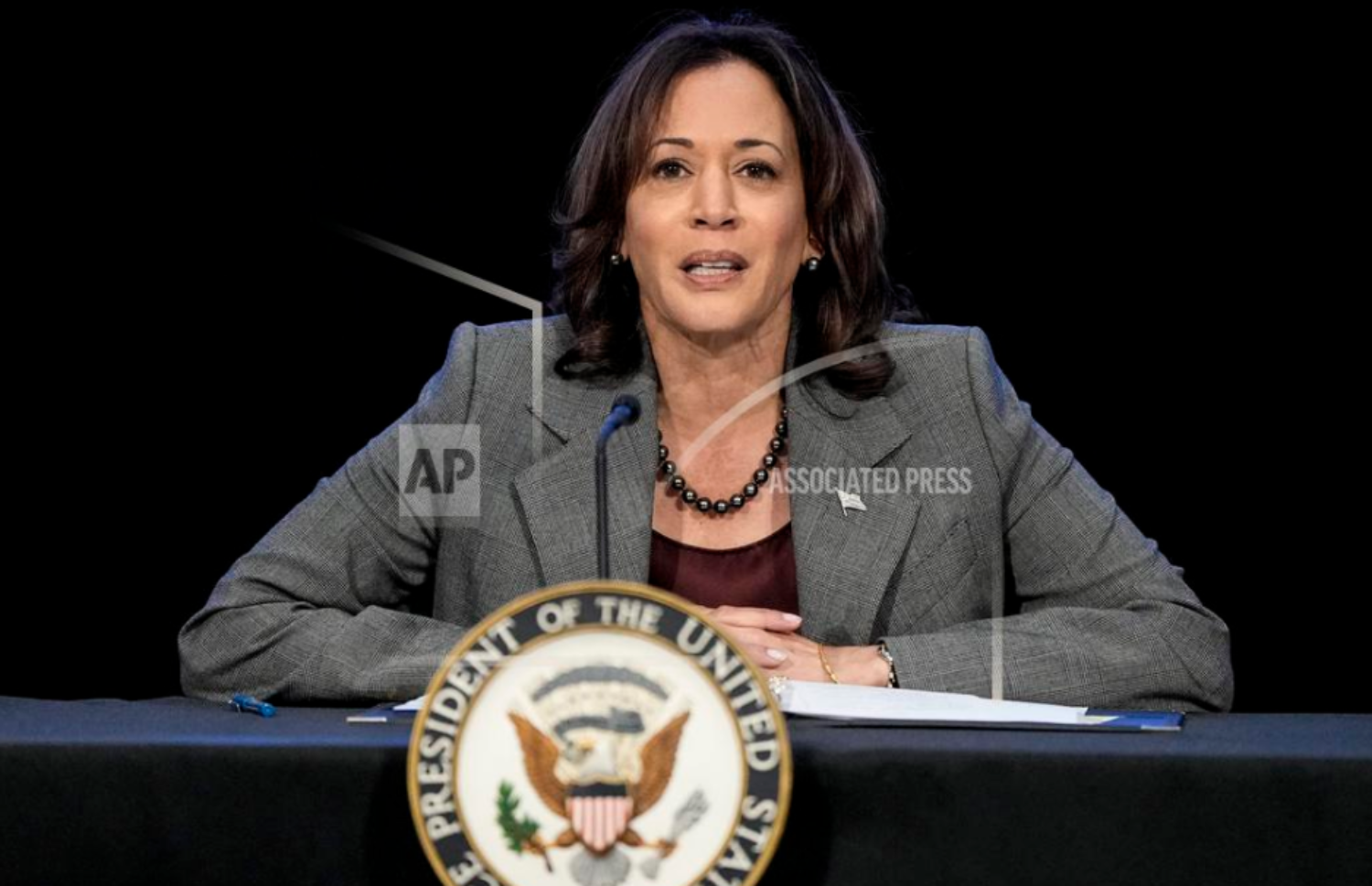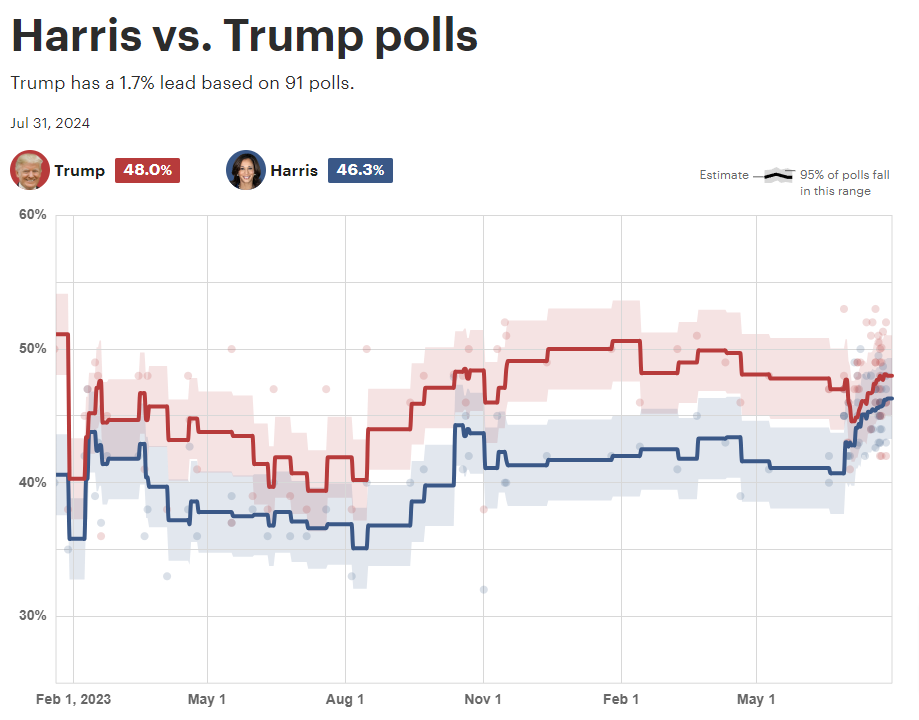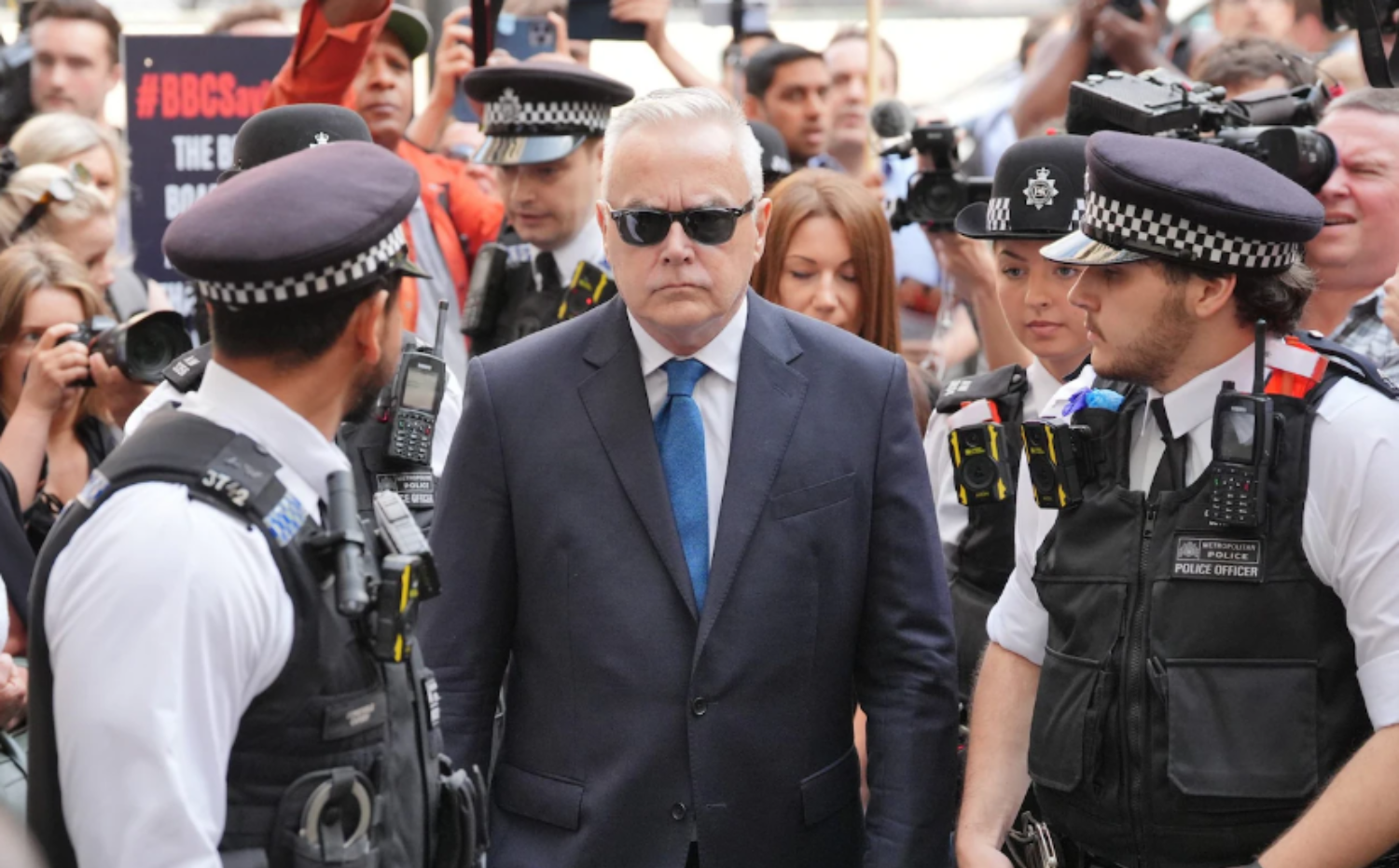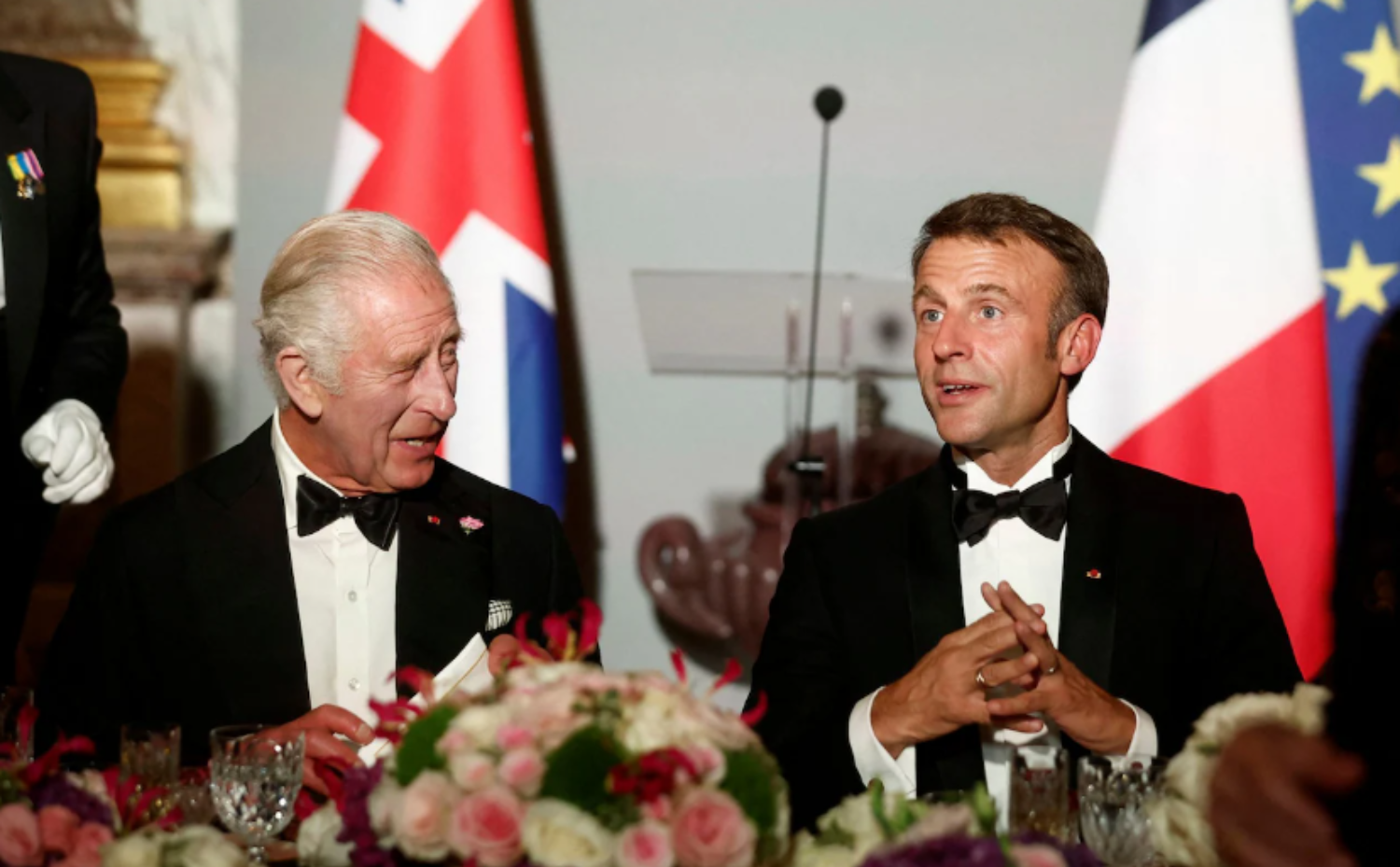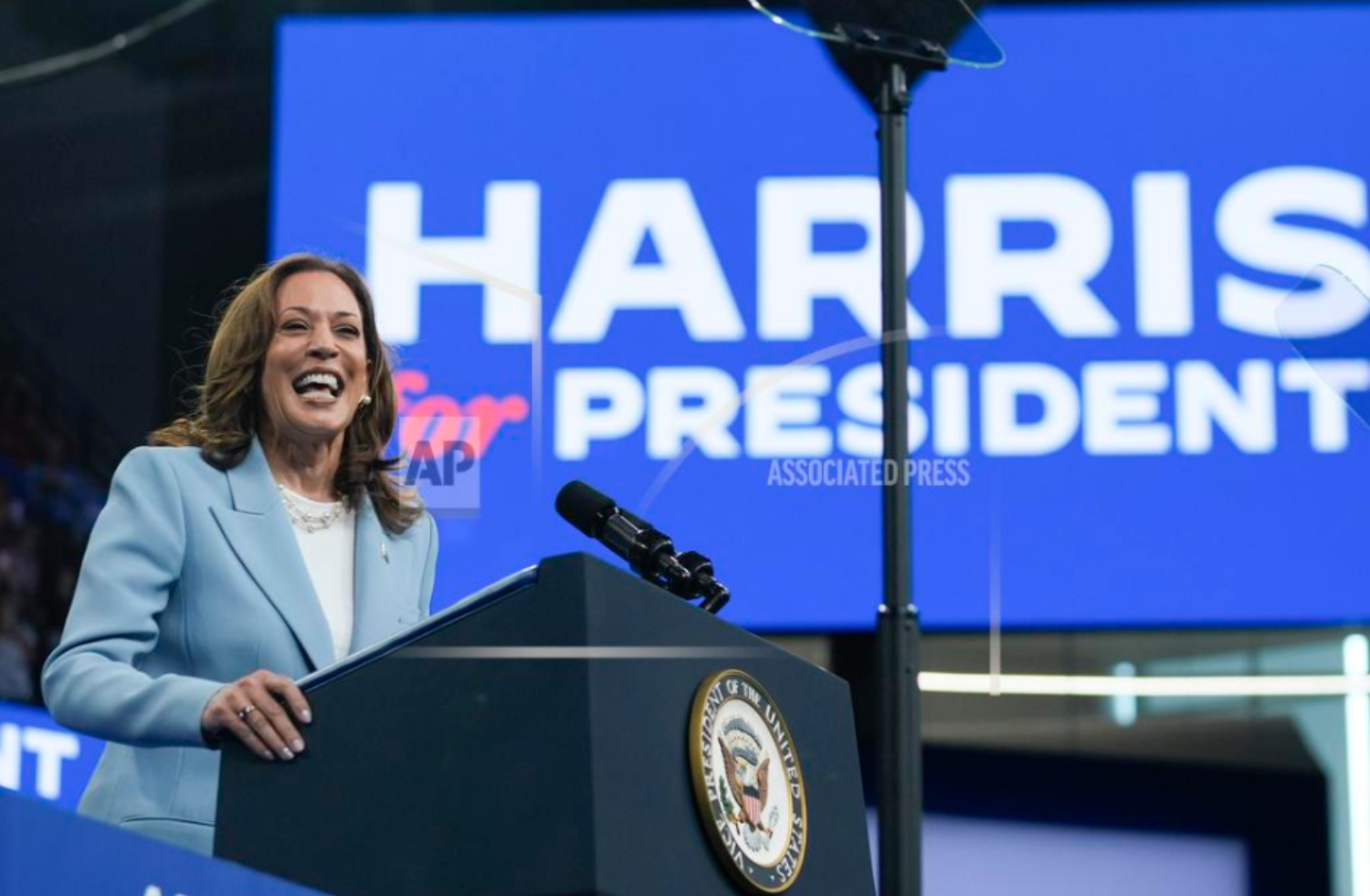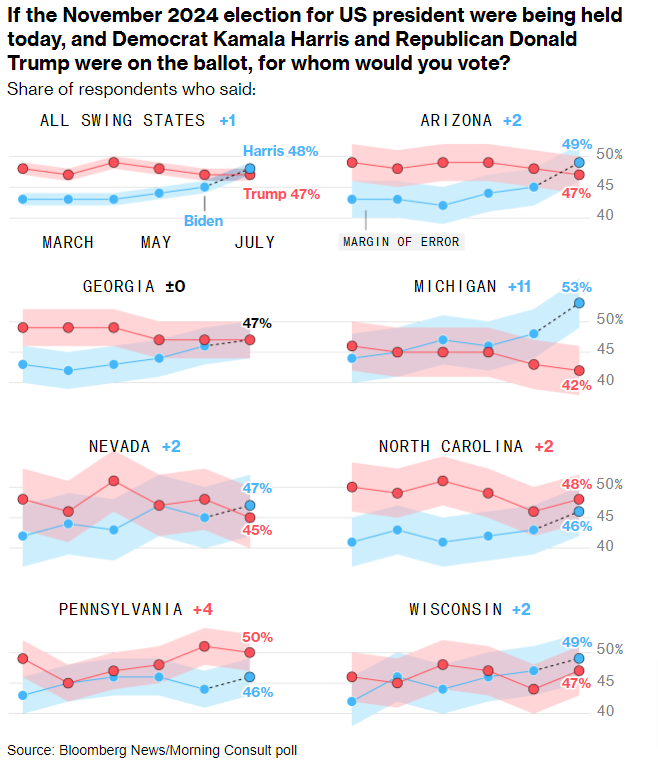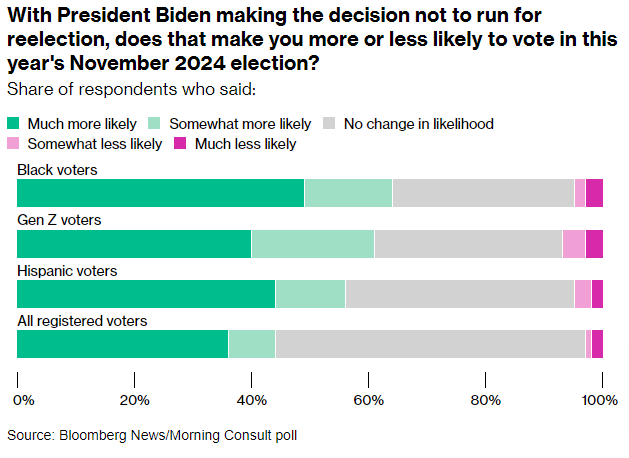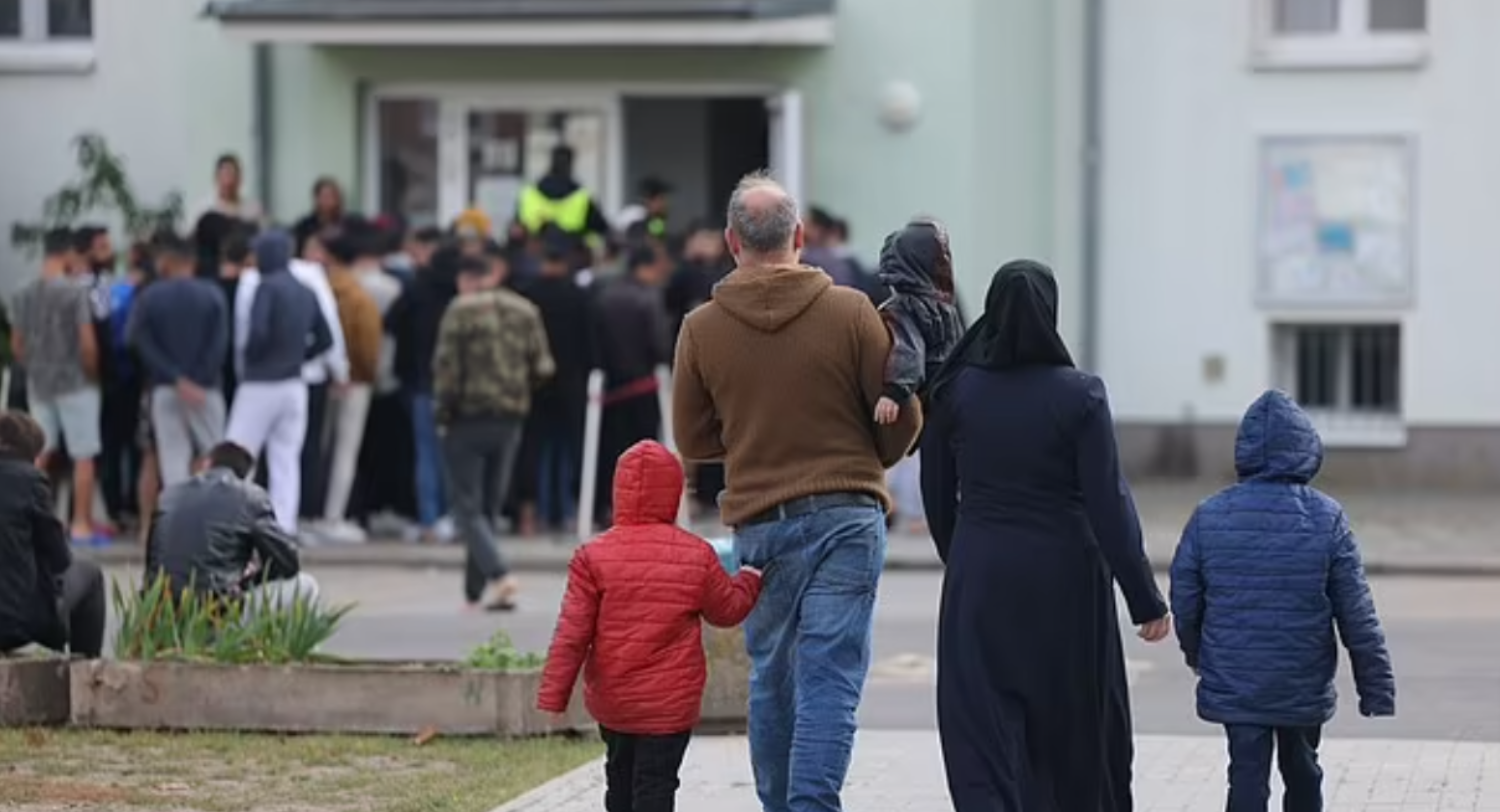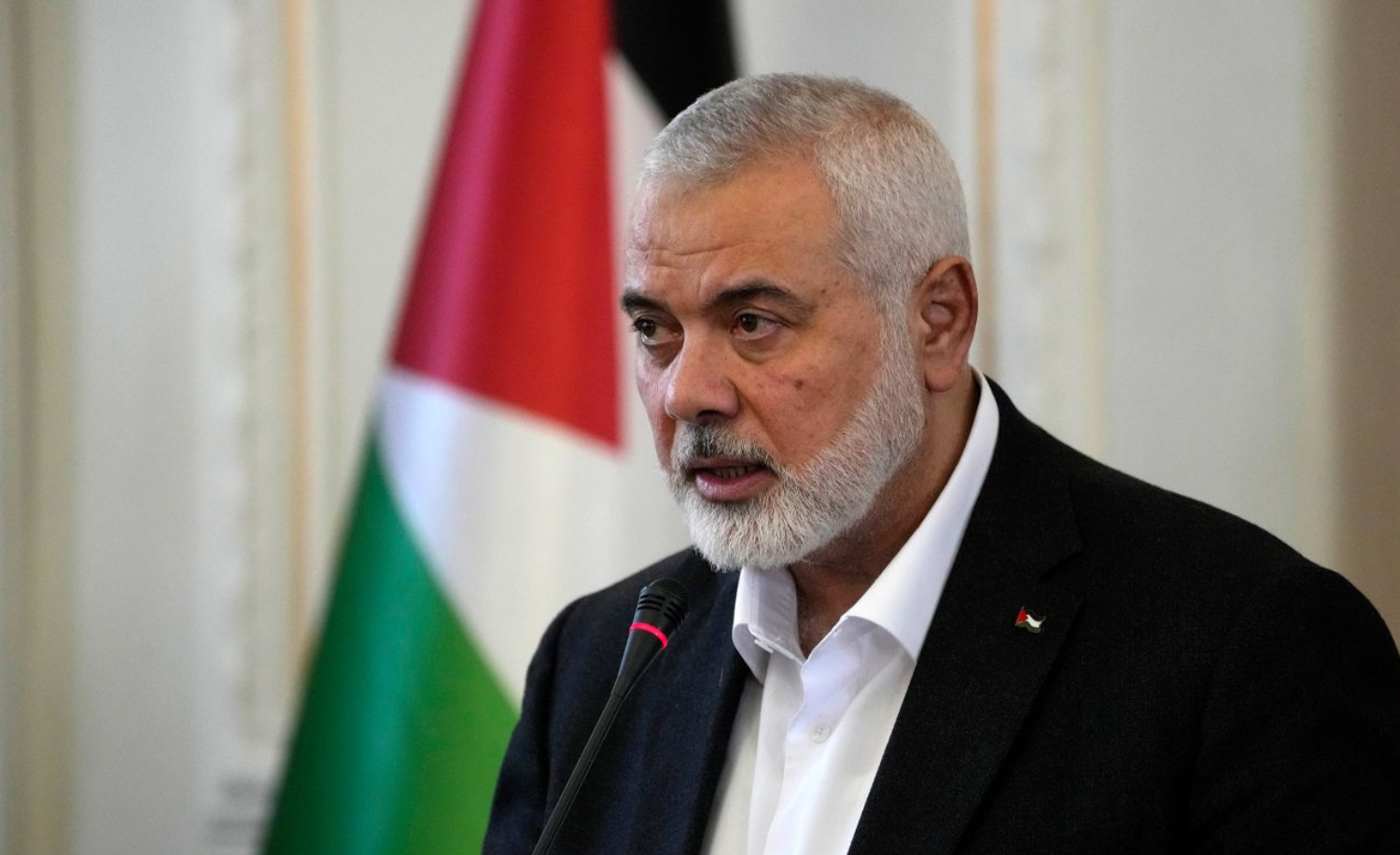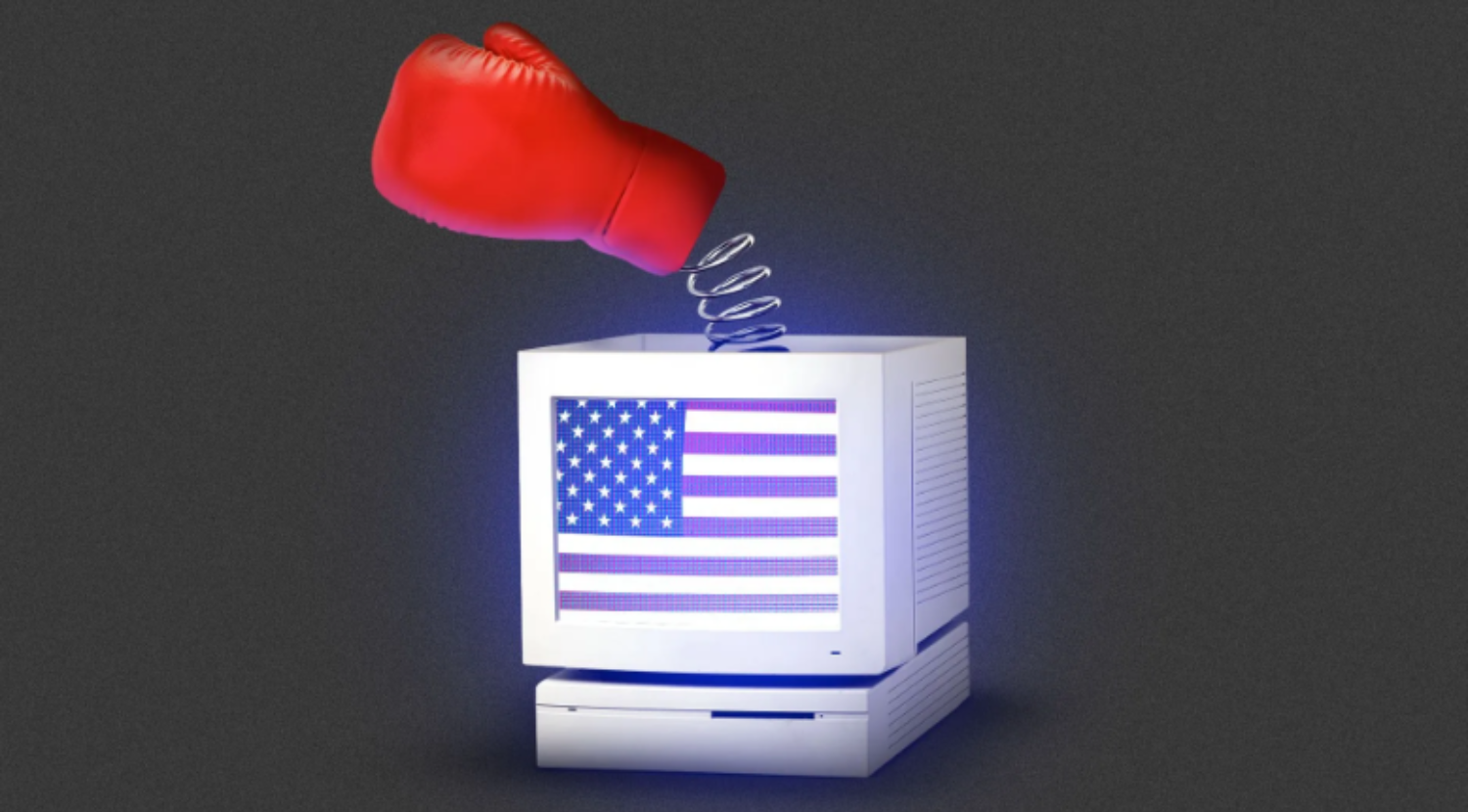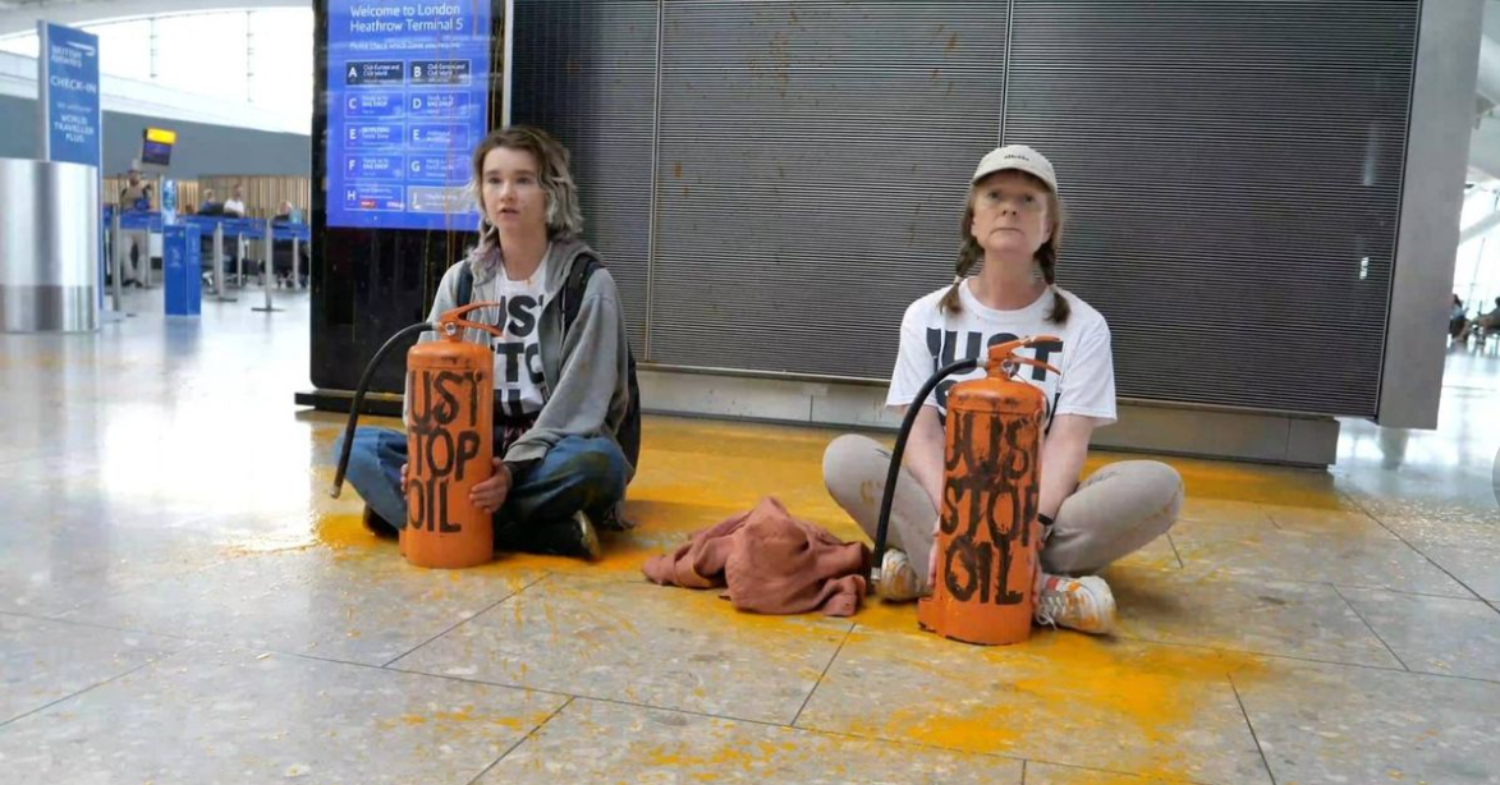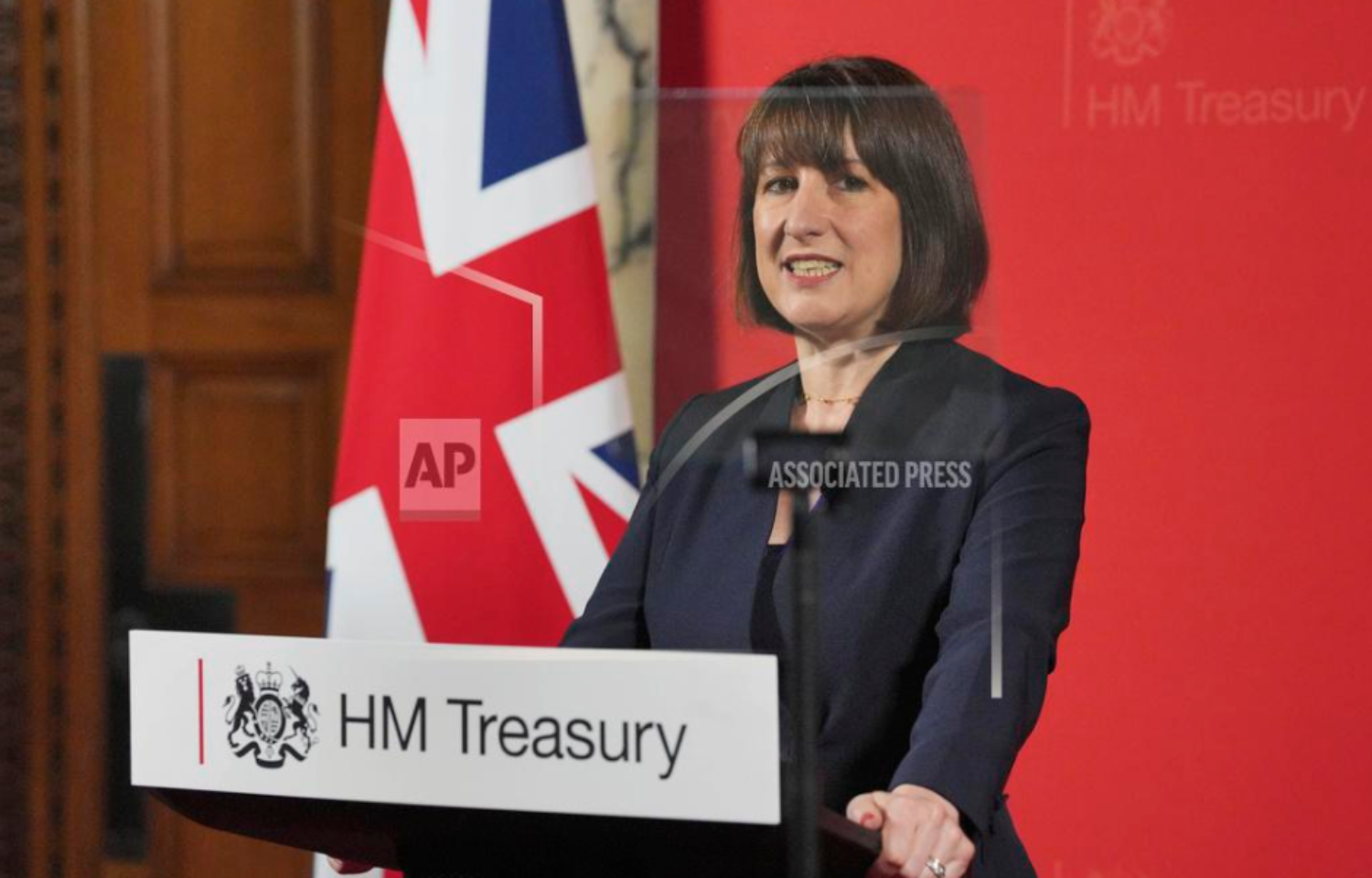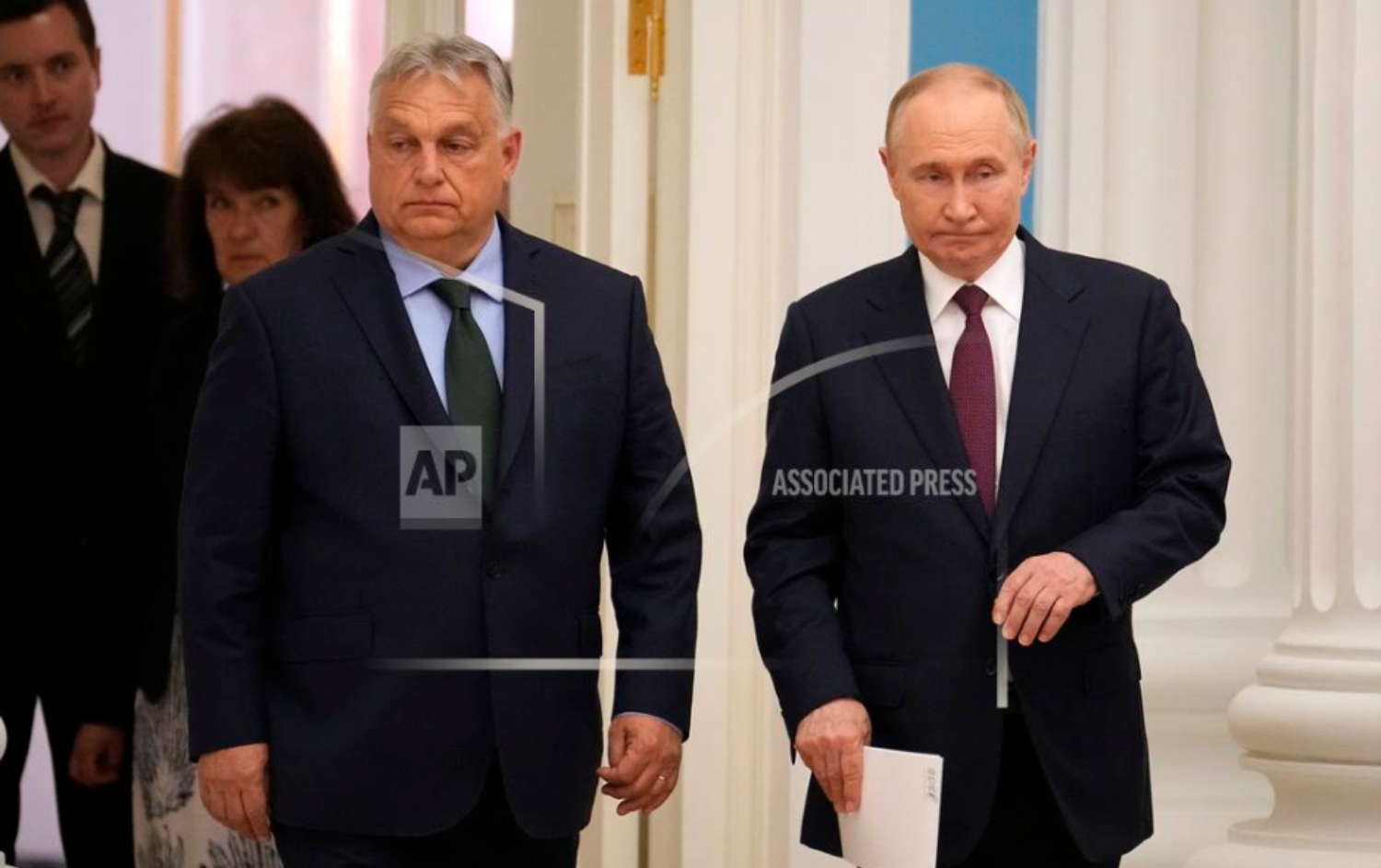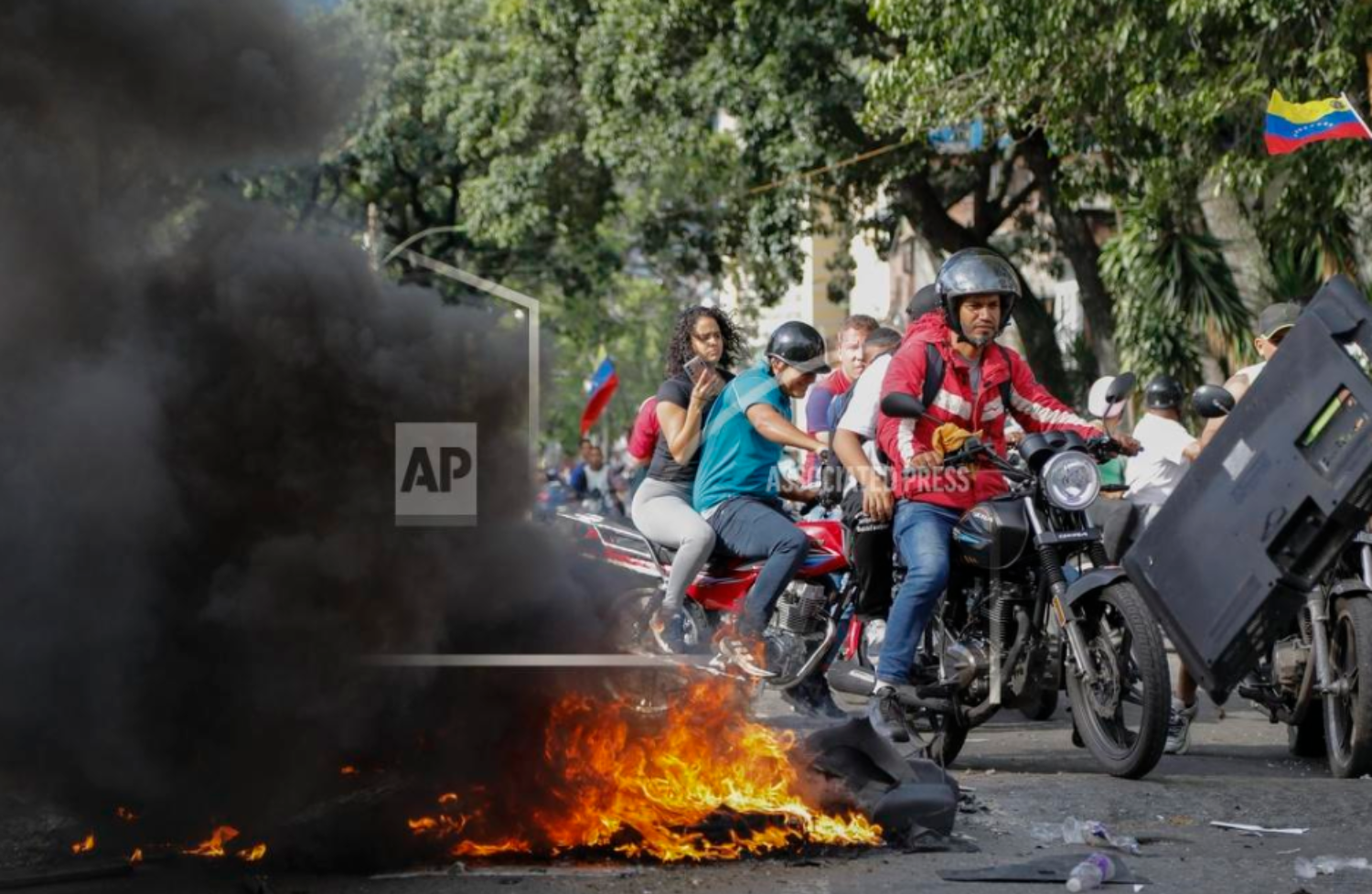-
Posts
10,807 -
Joined
-
Last visited
Content Type
Events
Forums
Downloads
Quizzes
Gallery
Blogs
Everything posted by Social Media
-
In a remarkable diplomatic maneuver, Turkey has facilitated the release and exchange of twenty-six prisoners from seven different countries. This significant exchange took place in Ankara and involved detainees from the United States, Germany, Poland, Slovenia, Norway, Russia, and Belarus. According to the Turkish presidency's statement, ten individuals, including two minors, were relocated to Russia. Thirteen prisoners were sent to Germany, and three were transferred to the United States. Among the prominent figures released were Wall Street Journal reporter Evan Gershkovich and US Marine Paul Whelan. Additionally, German mercenary Rico Krieger, who had been imprisoned in Belarus, and Russian opposition politician Ilya Yashin, were also part of the exchange. This prisoner swap is one of the largest and most extraordinary in modern history, not only due to the number of individuals involved but also because of the diverse nationalities of the prisoners. This event is particularly notable given the backdrop of the worst relations between the West and Russia since the end of the Cold War in 1991. Despite the ongoing conflict in Ukraine and the acceleration of hostilities since Russia’s full-scale invasion in 2022, it is evident that communication channels have remained open between the intelligence agencies of the involved nations. Turkey's involvement in this exchange is significant. Ibrahim Kalin, the head of Turkish intelligence (MIT), reportedly met his Russian counterpart in Ankara last week. Turkey, a NATO member, has managed to maintain a stable relationship with Moscow, largely due to the cooperative rapport between Turkey’s President Recep Tayyip Erdogan and Russia’s President Vladimir Putin. Key details about the prisoner exchange reveal that three US citizens imprisoned in Russia are expected to be released as part of a deal agreed upon by the Biden administration. These individuals include Wall Street Journal reporter Evan Gershkovich, US Marine veteran Paul Whelan, and Russian-American radio journalist Alsu Kurmasheva. In total, the exchange involves 24 prisoners held in Russia, the US, Germany, and three other Western countries. Eight Russian nationals are expected to be returned to Russia, including several with suspected ties to Russian intelligence. While the swap has not yet been completed, it is expected to take place later today. Speculation about a major exchange grew after several dissidents and journalists jailed in Russia were reportedly moved from their prison cells to unknown locations. Vladimir Kara-Murza, a Kremlin opponent with dual Russian-British citizenship, is among those whose whereabouts are currently unknown, fueling expectations that he, too, might be released as part of the deal. If all these releases take place, this event will mark one of the biggest prisoner exchanges between Russia and the West in history. This development highlights Turkey's pivotal role in international diplomacy and the continuing efforts to maintain dialogue and negotiations despite the current geopolitical tensions. Credit: BBC 2024-08-01 Get our Daily Newsletter - Click HERE to subscribe Cigna offers a variety of health insurance plans designed to meet the minimum requirement for medical treatment coverage, with benefits reaching up to THB 3 million. These plans are tailored to provide comprehensive healthcare solutions for expatriates, ensuring peace of mind and access to quality medical services. To explore the full range of Cigna's expat health insurance options and find a plan that suits your needs, click here for more information.
-
In a significant diplomatic development, Russian President Vladimir Putin has released two high-profile American prisoners, Wall Street Journal reporter Evan Gershkovich and former U.S. Marine Paul Whelan, as part of a prisoner swap deal. The details of the arrangement, including the identities of those exchanged, have not been fully disclosed, but the release follows days of intense speculation. Evan Gershkovich, who was sentenced to 16 years in a maximum-security penal colony on espionage charges, was arrested by Russia’s FSB security service in March 2023 during a reporting trip in Yekaterinburg. Accused of gathering secret information about a Russian tank factory for the CIA, Gershkovich's trial was widely condemned by the Wall Street Journal and the Biden administration as a sham. Paul Whelan, arrested in Moscow in 2018 and sentenced in 2020 to 16 years for espionage, was previously a figure in U.S.-Russia prisoner negotiations. His case was highlighted during the December 2022 swap that saw WNBA star Brittney Griner exchanged for Russian arms dealer Viktor Bout. At that time, U.S. officials noted that Russia refused to include Whelan in the deal, with President Joe Biden criticizing Moscow for treating Whelan’s case differently from Griner’s "for totally illegitimate reasons." Despite this, Biden vowed to continue efforts to bring Whelan home. Christo Grozev, an investigative journalist involved in the recent negotiations, described the swap as "bittersweet," acknowledging the release of individuals imprisoned on "insane charges" while also noting that the deal reinforces Putin’s strategy of using prisoners as "swap capital" to reclaim Russian operatives. In addition to Gershkovich and Whelan, the swap may involve Vladimir Kara-Murza, a Russian-British activist and journalist imprisoned since April 2023. Kara-Murza’s potential inclusion has been the subject of discussions within the UK government, although Britain does not typically engage in prisoner swaps. Some MPs have urged the Foreign Office to lobby the U.S. for his release, but it remains uncertain if these efforts will be successful, as negotiations with Russia are notoriously challenging. The release of Gershkovich and Whelan marks a notable moment in U.S.-Russia relations, reflecting ongoing diplomatic efforts to resolve high-stakes prisoner cases despite strained ties between the two countries. This is an updating story. Credit: Daily Telegraph 2024-08-01 Get our Daily Newsletter - Click HERE to subscribe Cigna offers a variety of health insurance plans designed to meet the minimum requirement for medical treatment coverage, with benefits reaching up to THB 3 million. These plans are tailored to provide comprehensive healthcare solutions for expatriates, ensuring peace of mind and access to quality medical services. To explore the full range of Cigna's expat health insurance options and find a plan that suits your needs, click here for more information.
-
Iran has issued a stern warning of "harsh punishment" for Israel, accusing it of being behind the assassination of Hamas leader Ismail Haniyeh on Wednesday. The assassination, which took place in Tehran, has sparked significant tension in the region. While Israel has not directly commented on the attack, Prime Minister Benjamin Netanyahu stated that Israel had recently dealt "crushing blows" to its adversaries, referencing the assassination of a senior Hezbollah commander in Lebanon just hours before the strike in Tehran. Netanyahu cautioned Israelis about "challenging days ahead" as the possibility of a broader Middle Eastern conflict looms. "Since the strike in Beirut, there are threats from all directions," he said in a televised address. "We are prepared for any scenario and will stand united and determined against any threat." UN Secretary-General Antonio Guterres has expressed concern over a "dangerous escalation" of hostilities in the region. The UN Security Council was scheduled to meet on Wednesday evening to discuss the growing tensions. Hamas's armed wing declared that Haniyeh's death would "take the battle to new dimensions" and have significant repercussions. Haniyeh, widely considered the overall leader of Hamas, played a crucial role in negotiations over a ceasefire in Gaza. His assassination occurred just hours after he attended the inauguration of Iran's new president, Masoud Pezeshkian, in Tehran. A senior Hamas official informed the BBC that the killing took place in the same building Haniyeh had used during previous visits to Iran. According to witnesses, a missile struck Haniyeh directly, killing him and leaving the group's leadership in a state of shock. Prior to Haniyeh's assassination, Israel announced it had killed senior Hezbollah commander Fuad Shukr in Beirut. Israel holds Shukr responsible for a rocket attack that killed 12 people in the Israeli-occupied Golan Heights on Saturday, an allegation Hezbollah denies. Shukr's body was found among the rubble of a residential building targeted by the strike, which also resulted in the deaths of four others, including two children. Hezbollah's response is anticipated, as the group has previously retaliated against the killings of its senior members with rocket attacks on Israel. In response to the escalating violence, the US has updated its travel guidance, advising citizens against traveling to Lebanon due to "rising tensions." The UK foreign secretary has similarly urged nationals to leave the country. Consequently, several airlines have canceled flights to Beirut, and United, Delta, and British Airways are expected to announce the suspension of flights to Tel Aviv. Credit: BBC 2024-08-01 Get our Daily Newsletter - Click HERE to subscribe Cigna offers a variety of health insurance plans designed to meet the minimum requirement for medical treatment coverage, with benefits reaching up to THB 3 million. These plans are tailored to provide comprehensive healthcare solutions for expatriates, ensuring peace of mind and access to quality medical services. To explore the full range of Cigna's expat health insurance options and find a plan that suits your needs, click here for more information.
-
The U.S. Department of Defence has announced that three of the men accused of orchestrating the September 11, 2001 terrorist attacks have entered into a pre-trial agreement. Khalid Sheikh Mohammad, Walid Muhammad Salih Mubarak Bin Attash, and Mustafa Ahmed Adam al-Hawsawi, who have been detained at the U.S. Navy base in Guantanamo Bay, Cuba for years without trial, will plead guilty in exchange for the prosecution agreeing not to seek the death penalty. The specific terms of the plea deal have not yet been disclosed. Nearly 3,000 people were killed in the 9/11 attacks, which targeted New York, Virginia, and Pennsylvania. These attacks, carried out by al-Qaeda, led to the "War on Terror" and the invasions of Afghanistan and Iraq. The 9/11 attacks remain the deadliest assault on U.S. soil since the 1941 Japanese attack on Pearl Harbor, which resulted in 2,400 deaths. The plea deal was first reported in a letter sent by prosecutors to the families of the victims, according to The New York Times. The letter from Chief Prosecutor Rear Admiral Aaron Rugh stated, "In exchange for the removal of the death penalty as a possible punishment, these three accused have agreed to plead guilty to all of the charged offenses, including the murder of the 2,976 people listed in the charge sheet." The men face charges including attacking civilians, murder in violation of the laws of war, hijacking, and terrorism. They are expected to formally submit their pleas in court as early as next week. In September, the Biden administration reportedly rejected the terms of a plea deal with five men held at Guantanamo Bay, including Khalid Sheikh Mohammad. The men had sought a guarantee from the president that they would not be kept in solitary confinement and would have access to trauma treatment. The White House National Security Council stated that the president's office was informed of the deal on Wednesday and had played no role in the plea deal negotiations. Khalid Sheikh Mohammad is widely regarded as the architect of the 9/11 attacks. Hijackers seized passenger planes and crashed them into the World Trade Center in New York and the Pentagon outside of Washington, D.C. A third plane crashed into a field in Pennsylvania after passengers attempted to overpower the hijackers. Mohammad, a U.S.-educated engineer, was captured along with Hawsawi in Pakistan in March 2003. Prosecutors contend that Mohammad proposed the idea of hijacking and flying planes into U.S. buildings to al-Qaeda leader Osama bin Laden and later helped recruit and train some of the hijackers. Mohammad was subjected to "enhanced interrogation techniques," including waterboarding, at least 183 times before the practice was banned by the U.S. government. Admiral Rugh's letter emphasized that the decision to accept the deal was "not reached lightly" and was considered the "best path... to justice." However, Jim Smith, whose wife died in the attacks, expressed his disappointment to the New York Post, stating that families of the victims had "waited 23 years to have our day in court to put on the record what these animals did to our loved ones." He added, "They took that opportunity away from us," and asserted that the accused should receive the "highest penalty" for their roles. Credit: BBC 2024-08-01 Get our Daily Newsletter - Click HERE to subscribe Cigna offers a variety of health insurance plans designed to meet the minimum requirement for medical treatment coverage, with benefits reaching up to THB 3 million. These plans are tailored to provide comprehensive healthcare solutions for expatriates, ensuring peace of mind and access to quality medical services. To explore the full range of Cigna's expat health insurance options and find a plan that suits your needs, click here for more information.
-
Kamala Harris, has shifted her stance on several key policy issues, including fracking, border control, healthcare, and policing. This move comes after she faced criticisms from former President Donald Trump, who attacked her previous liberal views during the 2020 presidential primary race. Harris, who previously positioned herself to the left of the Democratic Party, has now softened her opposition to fracking and private healthcare. She also emphasized her tough record on crime and illegal immigration at the southern U.S. border. This strategic repositioning is in response to a barrage of Republican attack ads, with the Trump campaign launching its first advertisement against her on Tuesday. The ad described her as “failed,” “weak,” and “dangerously liberal,” targeting voters in six battleground states: Pennsylvania, Georgia, Michigan, Arizona, Nevada, and Wisconsin. The Trump campaign has particularly criticized Harris for her role in border control under Joe Biden’s administration, highlighting the surge in illegal crossings from Mexico. Trump has labeled her as Biden’s “border czar,” a title never officially bestowed upon her but used by the media since 2021. The ad revisited a 2021 interview where Harris responded to questions about her absence at the border by saying, “I haven’t been to Europe. I mean, I don’t understand the point you’re making.” Since taking over as the presumptive Democratic nominee on July 21, Harris has distanced herself from some of her earlier liberal positions as a California senator. In 2017, she co-sponsored Bernie Sanders’s “Medicare-for-all” bill, advocating for a national healthcare system similar to the NHS. However, she has since moderated her views, suggesting that private medical debt should not affect credit scores. During the 2020 campaign, Harris unequivocally supported a ban on fracking, which is crucial for U.S. natural gas and oil production. Her campaign clarified on Friday that she would not ban fracking if elected. She has also portrayed herself as a tough prosecutor, highlighting her role as California’s district attorney and moving away from her 2020 call to “redirect resources” from policing following George Floyd’s murder. In her 2024 campaign, Harris has emphasized her achievements as a prosecutor, stating, “I took on perpetrators of all kinds” and listing her efforts against predators, fraudsters, and cheaters. The Trump campaign’s attack ad drew attention to Harris’s previous statements on the U.S. migration crisis, where she called for a more humanitarian approach. However, her campaign manager, Julie Chavez Rodriguez, reaffirmed on Saturday that Biden’s tough border policies would continue under Harris. Some Democrats are concerned about the border issue, particularly in Arizona, a key battleground state with significant concerns about illegal migration. Responding to Trump’s border attack ads, a spokesperson for Harris’s campaign accused Trump of spreading “his trademark lies” about her policy positions. The spokesperson highlighted Harris’s career as a district attorney, attorney general, and Vice-President, underscoring her commitment to prosecuting violent criminals and ensuring community safety. Harris’s strategic shift in policy positions aims to counter Republican criticisms and appeal to a broader electorate as she campaigns for the presidency. Credit: Daily Telegraph 2024-08-01 Get our Daily Newsletter - Click HERE to subscribe Cigna offers a variety of health insurance plans designed to meet the minimum requirement for medical treatment coverage, with benefits reaching up to THB 3 million. These plans are tailored to provide comprehensive healthcare solutions for expatriates, ensuring peace of mind and access to quality medical services. To explore the full range of Cigna's expat health insurance options and find a plan that suits your needs, click here for more information.
-
Former President Donald Trump and Vice President Kamala Harris are locked in a tight race in crucial battleground states, according to recent polling data shared with The Hill. The surveys, conducted by the left-leaning Public Policy Polling and commissioned by the Democratic super PAC Progress Action Fund, show Trump holding a slight lead over Harris in Arizona and Pennsylvania, while Harris edges out Trump in Georgia. In Arizona, Trump garners 49 percent support compared to Harris’s 47 percent, with 3 percent of respondents undecided. Pennsylvania presents a similar scenario, with Trump leading Harris 48 percent to 47 percent, and 5 percent of voters undecided. Conversely, in Georgia, Harris leads Trump 48 percent to 47 percent, with another 5 percent undecided. These figures suggest that Trump and Harris are effectively tied in all three states, reflecting a significant shift from a few weeks prior when President Biden was trailing Trump in most battleground regions. The Arizona poll also revealed that 59 percent of respondents said that having Senator Mark Kelly (D-Ariz.) as Harris's running mate would not affect their vote. Twenty-two percent indicated that Kelly’s presence on the ticket would make them more likely to support Harris, while 17 percent said it would make them less likely to do so. Only 2 percent were unsure about the impact of Kelly’s potential candidacy. In Pennsylvania, a similar sentiment was observed, with 64 percent of respondents stating that Governor Josh Shapiro (D) as Harris's running mate would not influence their vote. Nineteen percent mentioned they would be more inclined to vote for Harris with Shapiro on the ticket, while 14 percent said they would be less likely to support her. Three percent were undecided on this matter. Joe Jacobson, founder and executive director of Progress Action Fund, remarked, "In just one week, Vice President Harris has turned this race around by running an exceptional and unprecedentedly effective campaign." He added, "Most Democrats are afraid to go on offense, but Vice President Harris is not one of them. She completely shifted the narrative of the race and she will win the presidency if Democrats continue to hold Donald Trump and Republicans accountable for their creepy, weird policies." The Democratic super PAC behind these polls is known for its provocative advertising campaigns. One notable ad depicted a Republican congressman in a couples’ bedroom to highlight the issue of reproductive rights last year. Although these polls are still early, they suggest that Democrats have reasons to be optimistic about maintaining their hold on key battleground states with Harris as their presumptive nominee. The Harris campaign has been actively vetting potential vice-presidential candidates, with Kelly and Shapiro among those considered. The Public Policy Polling survey in Arizona was conducted between July 29 and 30, involving 618 Arizona voters, with a margin of error of 3.9 percent. The Pennsylvania survey, also conducted on the same dates, included 627 Pennsylvania voters, with a similar margin of error of 3.9 percent. In Georgia, the survey polled 662 voters from July 29 to 30, with a margin of error of 3.8 percent. These tight races underscore the highly competitive nature of the upcoming election, with both parties vying intensely for control over pivotal states. As the campaigns continue to unfold, the strategies and dynamics in these battleground regions will be crucial in determining the final outcome. Harris & Trump 91 polls Credit: Hill 2024-08-01 Get our Daily Newsletter - Click HERE to subscribe Cigna offers a variety of health insurance plans designed to meet the minimum requirement for medical treatment coverage, with benefits reaching up to THB 3 million. These plans are tailored to provide comprehensive healthcare solutions for expatriates, ensuring peace of mind and access to quality medical services. To explore the full range of Cigna's expat health insurance options and find a plan that suits your needs, click here for more information.
-
Russia's defence ministry has announced that it will begin training its troops in Ukraine to use tactical nuclear weapons on the battlefield. These exercises will involve the use of Iskander-M ballistic missiles and various aircraft, as outlined in a statement published on the Telegram messaging app by the ministry. The statement detailed that the exercises will focus on preparing units of the Russian armed forces for the combat use of non-strategic nuclear weapons. The personnel involved will practice obtaining special training ammunition for the Iskander-M operational-tactical missile systems, equipping launch vehicles with these munitions, and covertly advancing to designated positions to prepare for electronic launchers. The goal is to ensure the readiness of both personnel and equipment for the potential use of non-strategic nuclear weapons in combat missions. Tactical nuclear weapons, which have smaller warheads compared to strategic bombs, are designed for specific battlefield objectives rather than the widespread destruction associated with strategic nuclear strikes. Pro-war figures within the Kremlin have frequently called for the use of such weapons, both within and outside Ukraine, particularly in response to Ukrainian advances on the battlefield. The Moscow-based Council for Foreign and Defence Policy, a think-tank influential in shaping Russian government policy, has even suggested a "demonstrative" nuclear explosion as a means of deterring Western nations from supplying arms to Ukraine. The southern and central military districts, two of the five groupings that constitute Russia’s armed forces, will participate in these exercises. The southern district includes the Russian-occupied areas of the Ukrainian regions of Donetsk, Luhansk, Zaporizhzhia, and Kherson. These regions were claimed by President Vladimir Putin to be annexed following a series of disputed referendums in September 2022. The central military district, primarily responsible for Moscow’s offensive operations in Ukraine's eastern Donetsk region, has been tasked with capturing the city of Avdiivka, according to the US-based Institute for the Study of War. Russia has conducted numerous nuclear exercises, with Putin frequently threatening to use such weapons in retaliation to Western support for Ukraine. In May, Moscow's defence ministry released footage of its forces rehearsing cross-border strikes into Ukraine using Iskander missiles equipped with "special purpose" nuclear warheads. While Western analysts have previously dismissed these threats as "nuclear blackmail" rather than serious intentions to deploy nuclear strikes, the latest drills underscore the escalating rhetoric and military posturing. These developments come shortly after Putin threatened to resume production of mid-range nuclear weapons in response to the United States' planned missile deployments in Europe. This heightened state of readiness and the explicit training for the use of tactical nuclear weapons marks a significant and concerning escalation in the ongoing conflict between Russia and Ukraine, with broader implications for international security and the stability of the region. Credit: Daily Telegraph 2024-08-01 Get our Daily Newsletter - Click HERE to subscribe Cigna offers a variety of health insurance plans designed to meet the minimum requirement for medical treatment coverage, with benefits reaching up to THB 3 million. These plans are tailored to provide comprehensive healthcare solutions for expatriates, ensuring peace of mind and access to quality medical services. To explore the full range of Cigna's expat health insurance options and find a plan that suits your needs, click here for more information.
-
In a disturbing revelation, an investigation commissioned by U.S. Interior Secretary Deb Haaland has uncovered that at least 973 Native American children perished within the confines of the U.S. government's boarding school system. This damning report has prompted calls for a formal apology from the government for the brutal policies implemented through these schools. The investigation, led by Haaland, who is herself a member of the Laguna Pueblo tribe in New Mexico and the first Native American to hold a U.S. Cabinet position, found both marked and unmarked graves at 65 out of more than 400 boarding schools established with the intent to forcibly assimilate Native American children into white society. The investigation does not specify the exact causes of death for each child, but the reasons range from sickness to abuse, spanning a period of 150 years that ended in 1969. Additionally, some children may have succumbed to illnesses contracted at these schools after being sent back home. This comprehensive investigation was preceded by a series of listening sessions held over the past two years across the U.S. During these sessions, numerous former students recounted harrowing experiences of harsh and degrading treatment endured during their separation from families. “The federal government took deliberate and strategic action through boarding school policies to isolate children from their families, deny them their identities, and steal from them the languages, cultures, and connections that are foundational to Native people,” Haaland stated in a call with reporters. “Make no mistake, this was a concerted attempt to eradicate the, quote, ‘Indian problem,’ to either assimilate or destroy Native peoples altogether.” In an earlier report released in 2022, officials estimated that over 500 children had died in these schools. The origins of these schools trace back to 1819 when the federal government enacted laws and policies to support their establishment. The last of these institutions operated until the 1960s. Within these schools, Native American children were stripped of their identities, given English names, subjected to military drills, and forced to undertake manual labor such as farming, brick-making, and railroad work. Former students shared emotional accounts of their time in these institutions during listening sessions held in states including Oklahoma, South Dakota, Michigan, Arizona, and Alaska. They described being punished for speaking their native languages, being confined to basements, and having their hair cut to erase their cultural identities. Some were subjected to solitary confinement, beatings, and food deprivation. Many left the schools with only basic vocational skills, which limited their employment opportunities. Donovan Archambault, 85, the former chairman of the Fort Belknap Indian Reservation in Montana, recounted being sent away to boarding schools at the age of 11, where he was mistreated, forced to cut his hair, and prohibited from speaking his native language. The trauma led him to heavy alcohol consumption before he eventually turned his life around two decades later. Archambault had not shared his school experiences with his children until he penned a book about it several years ago. “An apology is needed. They should apologize,” Archambault told the Associated Press by phone. “But there also needs to be a broader education about what happened to us. To me, it’s part of a forgotten history.” Haaland expressed profound personal regret, stating she was “sorry beyond words,” but suggested that a formal apology should come directly from the federal government. She did not indicate whether she would urge President Joe Biden to issue one. Additionally, Interior Department officials recommended that the government invest in programs aimed at helping Native American communities heal from the traumas inflicted by the boarding schools. This includes funding for education, violence prevention, and the revitalization of Indigenous languages. The agency emphasized that the scale of these efforts should match the spending on the schools. The financial underpinnings of the boarding schools and related assimilation programs were substantial, with $23.3 billion spent in inflation-adjusted federal funds. Many of the schools were operated by religious and private institutions that received federal support, playing a significant role in the campaign to “civilize” Indigenous students. By 1926, over 80% of Indigenous school-age children—approximately 60,000—were attending boarding schools run either by the federal government or religious organizations, according to the National Native American Boarding School Healing Coalition. The Minnesota-based group has identified more than 100 additional schools not included in the government’s list, which were run by churches without federal support. In June, U.S. Catholic bishops issued an apology for the church’s role in the trauma experienced by the children. Pope Francis also apologized in 2022 for the Catholic Church’s cooperation with boarding schools in Canada, acknowledging that the forced assimilation of Native peoples into Christian society devastated cultures, severed families, and marginalized generations. Legislation currently pending before Congress seeks to establish a Truth and Healing Commission to document and acknowledge the injustices related to boarding schools. The measure is sponsored in the Senate by Democrat Elizabeth Warren of Massachusetts and supported by Republican Lisa Murkowski of Alaska. Credit: The Guardian 2024-08-01 Get our Daily Newsletter - Click HERE to subscribe Cigna offers a variety of health insurance plans designed to meet the minimum requirement for medical treatment coverage, with benefits reaching up to THB 3 million. These plans are tailored to provide comprehensive healthcare solutions for expatriates, ensuring peace of mind and access to quality medical services. To explore the full range of Cigna's expat health insurance options and find a plan that suits your needs, click here for more information.
-
Former BBC TV news presenter Huw Edwards, a household name in Britain, pleaded guilty on Wednesday to three counts of making indecent pictures of children. Edwards, 62, who was the BBC’s highest-paid journalist and top news anchor until he quit in April, had arrived at London’s Westminster Magistrates’ Court wearing sunglasses, making his way through a throng of photographers and camera crews. After confirming his identity, he was asked if he wished to indicate a plea to the three charges, which relate to three different categories of indecent images. Edwards said, “Guilty.” Judge Paul Goldspring stated that Edwards would be sentenced on September 16. During the 25-minute hearing, prosecutor Ian Hope detailed that the 41 still or moving images had been sent to Edwards by an adult male on WhatsApp between December 2020 and August 2021. Hope added that seven of the 41 images were of the most serious kind and that two of those seven were pornographic videos of a child possibly aged seven and nine years old. Edwards’ lawyer, Philip Evans, emphasized that the charges to which his client had indicated guilty pleas related only to images that were sent to him via WhatsApp. “There is no suggestion in this case that Mr. Edwards has in any way made, in the traditional sense of the word, any images in any physical way or created any images of any sort,” Evans said. Edwards, who announced the death of Queen Elizabeth to the nation in 2022 and led coverage of elections, royal weddings, and the 2012 Olympics, has not been on TV screens for a year, and the court appearance was his first in public since then. He quit in April on medical advice after newspaper allegations last year that he had paid a young person thousands of pounds for sexually explicit photos. Credit: NBC News 2024-08-01 Get our Daily Newsletter - Click HERE to subscribe Cigna offers a variety of health insurance plans designed to meet the minimum requirement for medical treatment coverage, with benefits reaching up to THB 3 million. These plans are tailored to provide comprehensive healthcare solutions for expatriates, ensuring peace of mind and access to quality medical services. To explore the full range of Cigna's expat health insurance options and find a plan that suits your needs, click here for more information.
-
President Emmanuel Macron's opulent state dinner for King Charles last year has come under scrutiny after an annual audit revealed it significantly impacted the Elysee Palace's finances. The lavish event, which took place at the historic Versailles Palace, cost close to €500,000 and featured a gourmet menu of lobster and crab. Among the 170 guests were notable figures like Rolling Stones frontman Mick Jagger and actor Hugh Grant, highlighting the grandeur of the occasion. The Elysee Palace’s budget for the year was stretched thin, with the state dinner being one of several high-cost events that contributed to an €8.3 million deficit. The total expenditure for the palace last year reached €125 million, covering a wide range of presidential and diplomatic activities, including administration, personnel, security, and estate management. However, the events for King Charles and India’s president, Narendra Modi, were among the most expensive engagements recorded by France’s state auditor, the Cour des Comptes. The luxurious banquet, hosted by Macron and his wife Brigitte, was a key gesture to strengthen France-Britain relations post-Brexit. The elaborate feast, costing over €475,000, included a catering bill of €165,000 and was executed by a team of 45 chefs, including Michelin-starred Yannick Alléno, Anne-Sophie Pic, and pastry chef Pierre Hermé. The meticulously planned menu, which took three months to prepare, featured a starter of blue lobster and crab inspired by Louis XIV’s tastes, followed by Mr. Alléno’s poulet de Bresse with a cep gratin. The drinks selection was equally impressive, with double magnums of Château Mouton-Rothschild 2004 grand cru classé Pauillac, whose label was designed by King Charles himself, and Pol Roger champagne. Guests dined at a 60-meter-long table adorned with locally sourced roses and hydrangeas in pink, purple, and white hues, set on plates made by the renowned Porcelaine de Sèvres. King Charles and Queen Camilla were reportedly delighted by the event. A royal source mentioned their satisfaction, stating they were "really delighted by the whole thing." President Macron's hospitality extended to other significant visits as well. When Indian President Narendra Modi visited in July, he received a curated tour of the Louvre’s masterpieces and an equally lavish dinner, which cost around €400,000. Despite the criticism from the audit court regarding the extravagant spending, particularly the waste caused by poor planning and the €830,000 lost in canceling 12 non-refundable trips, Macron's lavish hospitality was praised by some. Critics have often labeled Macron as “the president of the rich,” but the reaction to these financial revelations has been relatively muted. One diplomatic source reflected positively on the Versailles event, describing it as "magnificent" and likening it to a fairytale, affirming the grandeur and historical significance of the location. The Elysee Palace's financial strain from these events underscores the delicate balance between diplomatic grandeur and fiscal responsibility. While the lavish state dinners aimed to foster international relations and celebrate historical ties, they also highlight the need for more prudent financial planning to avoid substantial deficits in the future. Credit: Daily Telegraph 2024-08-01 Get our Daily Newsletter - Click HERE to subscribe Cigna offers a variety of health insurance plans designed to meet the minimum requirement for medical treatment coverage, with benefits reaching up to THB 3 million. These plans are tailored to provide comprehensive healthcare solutions for expatriates, ensuring peace of mind and access to quality medical services. To explore the full range of Cigna's expat health insurance options and find a plan that suits your needs, click here for more information.
-
A violent incident involving machetes at the seafront in Southend, Essex, led to the arrest of eight individuals following a "beach rave." The chaotic scene unfolded on Tuesday night near the Adventure Island theme park, where shocking footage captured on social media showed at least four people dressed in black, brandishing large knives and slashing at each other. The incident resulted in several individuals sustaining critical injuries, prompting swift action from the authorities. Southend East and Rochford MP Bayo Alaba expressed his deep concern and extended his thoughts to those affected, emphasizing the severity of the situation. He noted that similar incidents had occurred around the same time the previous year, highlighting a worrying pattern that needed urgent attention. Alaba stated, "This time last year it happened as well, this is a pattern now and because it is a pattern we have to look at it differently and see what we can do to mitigate it. I am just speechless looking at the videos and seeing how it unfolded, it is truly alarming. At the end of the day, we don't want this on our streets and in our community." Essex Police responded to the violence, which broke out around 7pm on one of the hottest days of the year, by implementing a section 60 dispersal order. This followed reports of an assault with an offensive weapon at Marine Parade at approximately 7.40pm. An individual was arrested at the scene on suspicion of possessing a bladed article and causing grievous bodily harm. Seven additional arrests followed, although further details were not immediately provided. The section 60 order, which remained in effect until 8pm the following day, granted officers the authority to stop and search individuals, their belongings, and their vehicles for weapons. The police swiftly cleared the seafront and nearby high street by 11.30pm, and additional patrols were conducted overnight to ensure public safety. Martin Richardson, the owner of Happidrome Arcade, revealed that a "beach rave" organized on TikTok had drawn people to Southend. He condemned the violence, stating, "No knife attack is acceptable full stop, and I hope these perpetrators are caught. It should have been dealt with, these larger groups meet up with other groups." Chief Superintendent Morgan Cronin condemned the dangerous behavior and emphasized the swift police response to ensure public safety. "These arrests were made quickly to keep the public safe, and we have multiple lines of enquiry to identify more suspects and bring them to justice. I’d like to reassure the wider public that these were targeted attacks involving just a small fraction of the visitors to Southend yesterday. I’d also like to thank our partners in the British Transport Police and the security teams working in Southend for their support in dispersing the crowds and ensuring the public left the area covered by our dispersal order." He further stated, "The stop and search powers in place have already taken weapons off the streets of Southend and we will not hesitate to stop anyone we believe is carrying a weapon. If you carry a knife in Essex, you will not get away with it. Our officers will be in the city and on the seafront again today, so please speak to one of our officers if you have any information about last night’s disorder." The incident highlights ongoing concerns about public safety and the challenges authorities face in preventing violent outbreaks at large gatherings. The community and law enforcement agencies are now tasked with addressing the underlying issues and preventing future occurrences of such dangerous behavior. The authorities remain vigilant, and the local community hopes for a resolution that ensures the safety and security of all residents and visitors to Southend. Credit: Evening Standard 2024-08-01 Get our Daily Newsletter - Click HERE to subscribe Cigna offers a variety of health insurance plans designed to meet the minimum requirement for medical treatment coverage, with benefits reaching up to THB 3 million. These plans are tailored to provide comprehensive healthcare solutions for expatriates, ensuring peace of mind and access to quality medical services. To explore the full range of Cigna's expat health insurance options and find a plan that suits your needs, click here for more information.
-
Vice President Kamala Harris has remarkably erased Donald Trump’s lead across seven critical battleground states, according to the latest Bloomberg News/Morning Consult survey. This unexpected development underscores a significant shift in the political dynamics as Harris leverages growing enthusiasm among young, Black, and Hispanic voters, positioning herself as a formidable contender against the former president. The survey reveals that Harris has secured the backing of 48% of voters, narrowly surpassing Trump, who stands at 47%. This statistical dead heat marks a more favorable standing for Harris compared to President Joe Biden, who trailed by two points before his withdrawal from the race. In pivotal states like Arizona and Nevada, Harris has overtaken Trump and has significantly widened Biden’s previous lead in Michigan. These numbers suggest Harris has the potential to reassemble the voter coalition that once propelled President Barack Obama to the White House, offering her a clearer path to victory than Biden, who struggled to galvanize the Democratic base. Just over a week into Harris becoming the presumptive nominee, the poll provides early indications that the Democratic Party’s bold move to replace an incumbent president on the ballot is yielding the desired effect. However, the race remains fiercely competitive. Across the surveyed swing states—Arizona, Georgia, Michigan, Nevada, North Carolina, Pennsylvania, and Wisconsin—the gap between Harris and Trump is within the poll’s statistical margin of error. Harris may currently be experiencing a “honeymoon phase,” as described by Trump’s top pollster, but she faces challenges in gaining trust on critical issues such as the economy and immigration. Nevertheless, the survey highlights a surge in enthusiasm for the Democratic ticket under Harris. Her candidacy appears to have energized key constituencies in the swing states, with more than one-third of voters indicating they are much more likely to vote now that the contest is between Trump and Harris. This sentiment is particularly strong among Black and Hispanic voters, with 49% and 44% respectively saying they are much more likely to cast ballots in November. Nearly two-thirds of Black voters reported being somewhat or much more likely to vote. Kamala moves the needle. People are excited,” said Robert Banks in downtown Marietta, Georgia, where he was distributing liquor to a local business. Banks, who is 47 and Black, plans to vote for the vice president. Although he admired Biden, he felt the president’s age made him vulnerable to attacks by Trump. Banks expressed relief at having a different candidate at the top of the ticket, despite his dissatisfaction with how Biden was “forced out.” “I’m definitely not for Trump,” he said. “We can’t go through four more years of him.” Harris’ appeal to Black and Hispanic voters poses a significant challenge for the Trump campaign, which has long aimed to court these groups, particularly younger men. This strategy was seen as a way for the GOP to broaden its support beyond its traditional base and compensate for a likely deficit among suburban women. However, Biden’s withdrawal has disrupted this plan. Trump has struggled to define Harris without appearing racist or sexist, risking alienation of swing-state voters. Additionally, Trump faces ongoing legal challenges, including being a convicted felon found liable for both sexual abuse and defamation, with an order to pay $83 million. Harris has capitalized on these issues by highlighting her record as a prosecutor. Political operatives suggest that the new match-up could alter the electoral strategies for both parties. Harris’ candidacy has bolstered Democratic prospects in states like Arizona, Nevada, and Georgia, creating more potential paths to victory than seemed possible for the 81-year-old Biden. However, Harris must still perform well in northern industrial states. While she is ahead in Michigan and slightly ahead in Wisconsin according to the new poll, Trump maintains a lead in Pennsylvania. These factors are crucial as Harris considers her choice for a running mate, aiming to solidify her position and maximize her chances of winning the presidency. Credit: Bloomberg 2024-08-01 Get our Daily Newsletter - Click HERE to subscribe Cigna offers a variety of health insurance plans designed to meet the minimum requirement for medical treatment coverage, with benefits reaching up to THB 3 million. These plans are tailored to provide comprehensive healthcare solutions for expatriates, ensuring peace of mind and access to quality medical services. To explore the full range of Cigna's expat health insurance options and find a plan that suits your needs, click here for more information.
-
Child refugees in Germany are being radicalized in mosques, joining gangs, and roaming the streets with knives as young as eleven, according to a leading youth charity. The Christian-run organization Die Arche (The Ark), which operates 33 centers across Germany and supports over 7,000 children and young people from refugee and socially disadvantaged families, has issued a stark warning about the state of integration in the country. In a revealing interview with the Bild newspaper, Wolfgang Büscher, a spokesperson for Die Arche with two decades of experience, painted a grim picture of the current situation. "Our system has collapsed. We are at the end. The main reason for this is the continuing influx of refugees," he stated. "I'm calling for a freeze on refugee admissions, otherwise it would no longer be possible to provide help." Adding to the alarming picture, a social worker named Josi, who has been with the organization for eight years, voiced her concerns about the crumbling support systems. "The support systems are no longer working. Integration has failed. We can't do everything," she said. She criticized politicians for their inaction, warning, "The politicians talk and talk and turn a blind eye to the problems. It will escalate and there will be a big bang." Germany is grappling with a significant influx of migrants from Syria, Afghanistan, and Turkey, and Büscher highlighted the growing criminalization and radicalization among young refugees, particularly those of Arab origin. "All the problems that refugee policy automatically brings with it, but that nobody really wants to recognize, are concentrated here," he explained. "Young Muslim adolescents in particular show what goes wrong with integration. Eleven-year-olds are already running around with knives here." He described how these children are often lost to gangs, which recruit them by exploiting their dissatisfaction with German society. "Come to us if you don't like the Germans. It's better with us," is the lure used by these gangs, according to Büscher. He also noted that many of the youths who visit Die Arche centers attend mosques where radical Islam is preached, referring to moderate places of worship as "wimp mosques." Büscher expressed concern about the almost complete absence of Muslim girls over the age of thirteen at the Berlin Ark center, attributing this to parental fears of Western values influencing their daughters. "They would then no longer be allowed to come to us. We no longer reach these families. They live in a bubble, in a different system," he lamented. He also mentioned reports from staff about young women being forced into marriage and children attending "hotspot schools" with a 95 percent proportion of immigrants. Germany received over 350,000 asylum applications last year, the highest number since 2016. Opposition figures argue that these numbers reflect a failure by the government to address what they describe as a "migration crisis." With around 18 percent of Germany's population being immigrants, the country remains the main destination for migrants in Europe. Büscher's comments come on the heels of German authorities banning the Islamic Centre Hamburg (IZH) and its subsidiary organizations for promoting radical Islamist goals. The interior ministry accused the IZH of supporting antisemitism and the Iran-backed militant group Hezbollah, which is banned in Germany and classified as a terrorist organization by the European Union. Premises belonging to the IZH were searched, leading to the closure of four mosques around the country. Interior Minister Nancy Faeser stated, "Today, we banned the Islamisches Zentrum Hamburg, which promotes an Islamist-extremist, totalitarian ideology in Germany. This Islamist ideology is opposed to human dignity, women's rights, an independent judiciary, and our democratic government." She clarified that the ban does not apply to the peaceful practice of the Shi'ite religion. A 2020 report on Islamic life in Germany estimated there were roughly 5.5 million Muslims in Germany's population of 83 million. The increasing concerns about integration and radicalization among child refugees highlight the urgent need for effective policies and support systems to address these complex challenges. Credit: Daily Mail 2024-08-01 Get our Daily Newsletter - Click HERE to subscribe Cigna offers a variety of health insurance plans designed to meet the minimum requirement for medical treatment coverage, with benefits reaching up to THB 3 million. These plans are tailored to provide comprehensive healthcare solutions for expatriates, ensuring peace of mind and access to quality medical services. To explore the full range of Cigna's expat health insurance options and find a plan that suits your needs, click here for more information.
-
Hamas political leader Ismail Haniyeh has reportedly been killed in Tehran, according to Iranian state media Press TV, which cited the Islamic Revolutionary Guard Corps (IRGC). In a separate statement, Hamas confirmed that Haniyeh and his bodyguard were killed in what they described as an Israeli raid on his residence, following his participation in the inauguration of the Iranian president. Ismail Haniyeh, a significant figure in the militant group, had a long-standing history with Hamas. Born in a refugee camp near Gaza City, Haniyeh joined Hamas in the late 1980s during the First Intifada, a Palestinian uprising against Israeli occupation. As Hamas grew in power, Haniyeh ascended through the ranks, becoming part of a secret “collective leadership” in 2004 and later being appointed as the prime minister of the Palestinian Authority in 2006. By 2017, he had risen to the position of the group's chief and was subsequently designated a “specially designated global terrorist” by the United States. Throughout his career, Haniyeh was involved in various diplomatic efforts, including peace talks with former US President Jimmy Carter. He also engaged with international leaders such as the Emir of Qatar, Sheikh Hamad bin Khalifa al-Thani, and Chinese diplomat Wang Kejian earlier this year. In April, Israeli airstrikes killed three of Haniyeh’s sons and four of his grandchildren, as reported by Hamas. Despite the personal loss, Haniyeh, who was based in Qatar at the time, stated that their deaths would not influence ongoing ceasefire and hostage negotiations. “Whoever thinks that by targeting my kids during the negotiation talks and before a deal is agreed upon that it will force Hamas to back down on its demands, is delusional,” he said. The Israeli military has declined to comment on the reports of Haniyeh's death, stating to CNN, “We don’t respond to reports in the foreign media.” Israel often doesn’t when it comes to assassinations carried out by their Mossad intelligence agency. The White House has also acknowledged the reports but has refrained from immediate further comment. The killing of Ismail Haniyeh is currently under investigation, with results expected to be announced later today, according to Iranian state media, citing the IRGC. The IRGC expressed condolences to “the heroic Palestinian nation, the Muslim Ummah (community), fighters of the resistance front, and the noble Iranian nation over the martyrdom of the senior Palestinian resistance leader,” as reported by state media. Haniyeh was in Tehran to attend the swearing-in ceremony of Iranian President Masoud Pezeshkian, highlighting the close ties between Hamas and Iran. The incident underscores the ongoing tensions and complex dynamics in the region, as both Hamas and Iran continue to be significant players in Middle Eastern geopolitics. Credit: CNN 2024-07-31 Get our Daily Newsletter - Click HERE to subscribe Cigna offers a variety of health insurance plans designed to meet the minimum requirement for medical treatment coverage, with benefits reaching up to THB 3 million. These plans are tailored to provide comprehensive healthcare solutions for expatriates, ensuring peace of mind and access to quality medical services. To explore the full range of Cigna's expat health insurance options and find a plan that suits your needs, click here for more information.
-

The Parody Loophole: AI and the Future of Political Satire
Social Media posted a topic in World News
As AI technology continues to advance, its ability to mimic the voices and moving images of public figures becomes ever more sophisticated. This has given rise to a new trend among deepfake creators: defending their creations as "just a parody." This loophole exploits America's long tradition of political humor, which is robustly protected by the First Amendment, allowing citizens to inject virtually any kind of fiction or fraud into the national dialogue as long as it is labeled as comedy. The recent news highlights this issue starkly. On Friday night, Elon Musk, with his 190 million followers on X (formerly Twitter), reposted a video featuring fake overdubs that mimic Vice President Kamala Harris's voice. The video's original poster, "MrReaganUSA," introduced it as a "Kamala Harris Campaign Ad PARODY." However, Musk's repost stripped away this label and simply called it "amazing 😂." The video uses real footage from a Harris campaign video but has her voice altered to say she is "the ultimate diversity hire" and describes both herself and President Biden as "deep state puppets." Whether the fake audio was generated using AI or another technique remains unclear. Musk's repost quickly drew criticism. Users noted that it appeared to violate X's rules on "synthetic and manipulated media" and "deceptive identities." Despite this, the post had garnered about 130 million views without receiving a "Community Notes" annotation, which is X's method of alerting readers to potentially misleading content. When California Governor Gavin Newsom suggested on X that Musk's post should be "illegal," Musk replied, "Parody is legal in America. 🤷♂️" This incident is particularly intriguing given Musk's acquisition of X in 2022, during which he emphasized the importance of real, verifiable identities on the platform. He also attempted to suppress users who created parody accounts of him. No owner or CEO of a major tech platform has previously endorsed a political candidate and then used their platform to promote that campaign with content widely viewed as deceptive. Parodies have been a staple of election-year content online for decades. In 2004, JibJab created crude videos featuring George Bush and John Kerry's heads on cartoon bodies. By 2008, more photorealistic videos of Barack Obama and John McCain in a break-dance competition were circulating. "Saturday Night Live" political impersonations became viral standards as soon as social media allowed, and in 2020, Sarah Cooper gained fame by lip-syncing to Trump recordings, presenting his tirades through her performances. Those who rely on the parody loophole often argue that it is "obvious" their work is intended to amuse rather than deceive. This is frequently the case. However, generative AI programs can now create lifelike audio and video of public figures saying and doing things they never actually said or did. As a result, parodies now look and sound more realistic than ever before, and much of the public has not yet adjusted their ability to discern truth from fiction. This widening of the parody loophole has created an open freeway for misinformation and fakery. Despite the potential for misuse, deepfakes have not yet become the widespread problem many experts predicted for the 2024 election cycle. Most social media platforms have moved quickly to counter outright frauds and have required labeling for AI-generated material. However, people who are inclined to believe in conspiracy theories have never been particularly discerning about the evidence they accept and do not necessarily need AI-quality realism. Much of online discourse is now treated as a game of trolling, where lies supported by fabricated evidence can easily gain traction. An example of this is the fictional story about J.D. Vance's furniture fetish, which even included a fake page reference to his memoir. The public sphere in America has always accommodated political mockery, but AI is making it increasingly difficult to distinguish between election-year humor and malicious fraud. As AI technology continues to evolve, it will be crucial for society to find new ways to navigate this blurred line and ensure that the freedom to parody does not come at the cost of truth and transparency in public discourse. Credit: AXIOS 2024-07-31 Get our Daily Newsletter - Click HERE to subscribe Cigna offers a variety of health insurance plans designed to meet the minimum requirement for medical treatment coverage, with benefits reaching up to THB 3 million. These plans are tailored to provide comprehensive healthcare solutions for expatriates, ensuring peace of mind and access to quality medical services. To explore the full range of Cigna's expat health insurance options and find a plan that suits your needs, click here for more information. -
For too long, the West has tolerated the increasing wave of Russian hybrid attacks on its people, infrastructure, and way of life. It's time to consider much tougher responses. Russian assassinations, explosions, attempts to undermine the transatlantic alliance's democratic system, and other forms of escalating malfeasance have been rampant for years. Recently, this has worsened to include Kremlin-directed sabotage against critical energy infrastructure, defense industries, and other entities supporting Ukraine’s right to self-defense across NATO countries. Assassination plots against leading defense industry executives have led the US to warn against Russia’s “intensifying campaign of subversion.” Despite this, the Western response has been muted and largely passive. Benjamin Schmitt of the Center for European Policy Analysis highlighted this when he asked the Danish prime minister about it in July. She acknowledged that “we are simply being too polite,” but gave no clear response on how the alliance should more appropriately respond. What can the West do? Clearly, it can continue to pursue a low-key response, using counter-intelligence to warn those targeted by the Russians and to stop plots developing, though this clearly does not always prevent the Kremlin from successfully executing attacks across Europe. There are also more robust alternatives. A more aggressive strategy would seek to punish, defeat, and reestablish effective deterrence with the Kremlin. Vladimir Putin is a mobster, and Western thinking should acknowledge this. In the American masterpiece "The Untouchables," the grizzled Chicago beat cop Jim Malone warns Elliot Ness that he can only defeat the gangster Al Capone by achieving escalation dominance. Malone advises Ness that if: “He [Capone] pulls a knife, you pull a gun, he sends one of yours to the hospital, you send one of his to the morgue.” Only by making clear that Western patience has been exhausted will the West finally safeguard its interests. Striking back is much easier than it once was. Putin’s decision to launch an all-out invasion 29 months ago has seen the creation of secret armies inside Russian territory. This provides a useful lever, which can be ratcheted up in direct response to Russia’s escalating terrorism abroad. The alliance collectively, or through various national intelligence agencies, can provide increased support to third parties already conducting sabotage and other activities inside Russia. Russian freedom fighters and Ukrainian intelligence services are already causing ample damage to Russian petrochemical infrastructure, defense industries, and the Russian elite all on their own. The provision of detailed intelligence, training, and material support to such groups by the West, combined with backchannel messaging to the Kremlin that such activities are a direct response to Russia’s own sabotage and assassination campaigns, should prove influential in changing Putin’s calculus. In other words, this does not have to be an all-out campaign against Russia. A low-level start would allow the Kremlin to review its campaign of aggression against the West and reconsider. In the meantime, there are numerous additional steps for the West to take to strengthen its response. Revising and renewing existing intelligence-sharing is crucial. There already exists an Intelligence Liaison Unit within NATO headquarters to share intelligence on terrorists; its adaptation would improve understanding of Russian hybrid threats. Intelligence-sharing agreements must be updated to reflect the evolving nature of the threat, ensuring that all agencies and nations have access to timely and actionable intelligence to dismantle Russian malign networks. This will enable better coordination and more effective responses to hybrid threats. Strengthening multinational collaboration and collective action against Russian terrorism is also vital. Drawing inspiration from the successes of Operation Gallant Phoenix, through which the international community came together to destroy the caliphate of the Islamic State in Iraq and ash-Sham (ISIS), while severely degrading its regional affiliates, NATO should establish a dedicated multinational task force focused on countering Russian hybrid threats and destroying the Kremlin’s networks around the world. This task force should include representatives from intelligence agencies, law enforcement, and the military, facilitating a comprehensive and coordinated approach to hybrid warfare. By treating Russian malign actors like the terrorists that they are, a dedicated task force employing the full range of available intelligence, law enforcement, and security authorities will leave no safe havens from which the Kremlin’s minions can operate with any degree of safety. It is imperative to enhance cybersecurity measures, given the centrality of such attacks in Russia’s strategy, as seen in June’s attack on the UK’s National Health Service. Investing in robust cybersecurity not only protects critical infrastructure but also develops offensive capabilities to deter and respond to cyber threats. This also opens the path for Western cyber-attacks against vulnerable Russian networks. This does not have to be done with the same nihilistic approach as our enemies, but it is now necessary. This too might benefit from cooperation with our Ukrainian allies, who have experience in this area. At the same time, Western messaging toward Russian populations must directly paint any attacks against Moscow’s systems as retribution for the Kremlin’s cyber misdeeds abroad. Ultimately, the transatlantic alliance should also more robustly support pro-democracy movements inside Russia, as there is nothing that Putin and his cronies fear more than a Russian populace no longer willing to endure a system in which the Kremlin harasses, exiles, imprisons, and murders Putin’s political rivals. The West must recognize that a more aggressive campaign to directly counter Russian malign activities is necessary to reestablish deterrence and proportionally punish the Kremlin for its brazen acts of terrorism. By adopting a comprehensive and coordinated approach, the West can better safeguard its interests and uphold the principles of democracy and the rule of law. Previous multinational approaches, such as Operation Gallant Phoenix’s success against ISIS, demonstrate that with the right strategies and robust cooperation, it is possible to successfully counter even the most complex and multifaceted hybrid threats. Doug Livermore is the President of Livermore Strategic Solutions Ltd. and the Deputy Commander for Special Operations Detachment – Joint Special Operations Command in the North Carolina Army National Guard. In addition to his role as the Director of Engagements for the Irregular Warfare Initiative, he is the National Director of External Communications for the Special Forces Association, National Vice President for the Special Operations Association of America, Director of Development of the Corioli Institute, and serves as Chair of the Advisory Committee for No One Left Behind. Credit: CEPA 2024-07-31 Get our Daily Newsletter - Click HERE to subscribe Cigna offers a variety of health insurance plans designed to meet the minimum requirement for medical treatment coverage, with benefits reaching up to THB 3 million. These plans are tailored to provide comprehensive healthcare solutions for expatriates, ensuring peace of mind and access to quality medical services. To explore the full range of Cigna's expat health insurance options and find a plan that suits your needs, click here for more information.
-
Heathrow Airport faced disruption this morning as Just Stop Oil activists targeted its Terminal 5, following an earlier failed attempt at Gatwick Airport. The eco-protesters covered departure boards in orange paint and sprayed windows and floors before sitting down in front of the boards. Security quickly intervened, removing the protesters from the premises. Heathrow Airport confirmed the swift resolution of the incident, stating that the airport continues to operate as normal, with passengers traveling as planned. The Metropolitan Police reported the arrest of two protesters and maintained a presence at the terminal to handle any further issues. Yesterday, Just Stop Oil activists attempted to block the departure gates at Gatwick's South Terminal around 8 am. However, holidaymakers simply stepped over the protesters, rendering the blockade ineffective. Sussex Police arrested eight people on suspicion of interfering with public infrastructure, assuring that the airport was functioning normally without any disruption caused by the protest. Gatwick Airport reiterated that operations remained unaffected, with arrested protesters being removed. In a related protest, Extinction Rebellion activists blocked Old Queen Street in Westminster, targeting the Policy Exchange office with pools of black liquid. This event is part of a broader campaign aimed at disrupting airports and the holiday industry, moving away from road blockades. The recent actions follow a series of arrests of Just Stop Oil members across multiple countries, including Germany, Norway, Finland, Spain, Austria, and Switzerland. These arrests were part of a crackdown on the group's campaign, which had billed July 23 as an “international uprising” under the banner “Oil Kills.” Authorities detained seven protesters at Heathrow under the Public Order Act, on suspicion of conspiring to interfere with a site of key national infrastructure, before they could reach a runway. Similar arrests were made in other countries, with police finding cutting gear and glue on the activists. The arrests were seen as a preemptive measure to prevent a summer of chaos, following the earlier imprisonment of Extinction Rebellion mastermind Roger Hallam and four others for up to five years, after their campaign to block motorways in 2022 was exposed. Just Stop Oil named two of the arrested Heathrow protesters as Sally Davidson, a 36-year-old hairdresser from Portland, Dorset, and Adam Beard, a 55-year-old gardener from Stroud, Gloucestershire. The group’s coordinated efforts and the quick responses from authorities highlight the ongoing tensions between environmental activists and those aiming to maintain public order and infrastructure integrity. Credit: The Sun | The Standard 2024-07-31 Get our Daily Newsletter - Click HERE to subscribe Cigna offers a variety of health insurance plans designed to meet the minimum requirement for medical treatment coverage, with benefits reaching up to THB 3 million. These plans are tailored to provide comprehensive healthcare solutions for expatriates, ensuring peace of mind and access to quality medical services. To explore the full range of Cigna's expat health insurance options and find a plan that suits your needs, click here for more information.
-
A host on Russian state TV has recently put forth a conspiracy theory suggesting that the Kremlin is collaborating with former President Donald Trump in anticipation of his potential victory in the 2024 U.S. presidential election. This unsubstantiated claim was presented by Ivan Kamenev, a host on the Solovyov live show, and an excerpt of the broadcast was posted on X, formerly known as Twitter, by Julia Davis, the founder of the Russia Media Monitor watchdog group. "Igor Pshenichnikov, an expert at the Russian Institute for Strategic Studies, says the rumor that Russia's Foreign Ministry is working with Trump is most likely true," Davis wrote. In the clip, Kamenev raised a provocative question regarding Trump's election bid: "Here's what I want to ask. There was news, although it wasn't officially confirmed, that Russia's Foreign Ministry is working on a big deal for negotiations with Donald Trump." Responding to Kamenev's suggestion, Igor Pshenichnikov stated, "It would be logical to suppose that our Foreign Ministry is working with Trump's team." Despite these assertions, Newsweek was unable to find specific reports in Russia corroborating Kamenev's claims about Russia's Foreign Ministry working on a deal with Trump. Russia has a history of using TV messaging to sow distrust and division. Newsweek reached out to Russia's Foreign Ministry and Trump's campaign for comments via email. Trump, the Republican presidential nominee for the 2024 election, has repeatedly stated that if reelected, he would quickly bring an end to the war in Ukraine by engaging in discussions with Russian President Vladimir Putin. However, on July 4, the Kremlin denied that any talks were underway between Putin and Trump regarding possible peace conditions for the Russia-Ukraine conflict. In the video, Pshenichnikov elaborated on his views about Trump: "Seeing in him, just as the rest of the world does, the most likely winner in the election. If no one gets in his way, and if there's even an election, if there is an election and if it's honest, if Trump lives until November 5, then he will certainly win." He added, "It would be stupid for us not to be working on potential dialogue with Trump. I think these leaks have a basis." The upcoming U.S. presidential election, where Trump is expected to face off against Vice President Kamala Harris, the presumptive Democratic nominee, is scheduled for November 5. On Monday, a U.S. intelligence official told reporters on a call organized by the Foreign Malign Influence Center—an agency under the Office of the Director of National Intelligence—that the U.S. intelligence community anticipates the Kremlin will focus its propaganda efforts on supporting Trump over Harris in the election. NBC News reported the official's statement, "Russia's core interest in this election is opposing candidates who want to offer further aid to Kyiv, and we expect Russia's focus will remain on that." Kamala Harris has previously criticized Trump for his relationship with Putin. Responding to Trump's statements, Steven Cheung, the Trump campaign communications director, said in March that Trump "believes European nations should be paying more of the cost of the conflict, as the U.S. has paid significantly more, which is not fair to our taxpayers." The Foreign Malign Influence Center has identified Russia as the predominant threat to U.S. elections. In an election security update on Monday, the agency stated, "Moscow continues to use a broad stable of influence actors and tactics and is working to better hide its hand, enhance its reach, and create content that resonates more with U.S. audiences." The agency added, "Russian influence actors have undertaken distinct efforts during this election cycle to build and use networks of U.S. and other Western personalities to create and disseminate Russian-friendly narratives." Earlier this year, Hungarian Prime Minister Viktor Orbán claimed that Trump had told him he would halt U.S. military aid to Ukraine to end the war. This assertion aligns with the narrative that Russia's state TV is trying to push, painting Trump as a favorable candidate who might align with Russian interests. As the election approaches, these conspiracy theories and propaganda efforts underscore the complex and often contentious nature of international political influence, highlighting the ongoing efforts of various actors to sway public opinion and electoral outcomes in their favor. Credit: Newsweek 2024-07-31 Get our Daily Newsletter - Click HERE to subscribe Cigna offers a variety of health insurance plans designed to meet the minimum requirement for medical treatment coverage, with benefits reaching up to THB 3 million. These plans are tailored to provide comprehensive healthcare solutions for expatriates, ensuring peace of mind and access to quality medical services. To explore the full range of Cigna's expat health insurance options and find a plan that suits your needs, click here for more information.
-
In a significant show of support, major LGBTQ+ organizations and leaders have rallied behind Vice President Kamala Harris as she embarks on her historic bid for the White House. This backing highlights Harris’s commendable record on LGBTQ+ rights, forged over a decades-long political career, and underscores the potential impact of her presidency on the community. Brandon Wolf, press secretary for the Human Rights Campaign (HRC), a prominent national LGBTQ+ advocacy group that has endorsed Harris, said, “Kamala Harris was a supporter of LGBTQ+ people when that was not an easy thing to do politically.” This sentiment is rooted in Harris’s actions during her tenure as San Francisco’s district attorney when she officiated some of the nation’s first same-sex marriage ceremonies during the city’s “Winter of Love” in 2004. Later, as California’s attorney general, Harris made a decisive stand by refusing to defend Proposition 8, a state constitutional amendment that banned same-sex marriage, in court. She actively advocated for the repeal of the amendment in 2013, which the Supreme Court eventually struck down later that year. Harris’s commitment to LGBTQ+ rights extended further when, as San Francisco’s district attorney, she established a hate crimes unit specifically to investigate crimes against LGBTQ+ children and teens in schools. She also played a pivotal role in making California the first state to ban the use of the gay and transgender “panic” defense, a legal strategy that allowed individuals accused of violent crimes to receive lesser sentences by claiming that the victim’s sexual orientation or gender identity caused them to panic. In 2017, as a California senator, Harris co-sponsored the Senate’s Equality Act, a landmark proposal aimed at amending existing federal antidiscrimination laws to include sexual orientation and gender identity as protected classes. A 2019 bill introduced by Harris sought to mandate private health plans to cover prescription HIV prevention medications, screenings, and clinical follow-ups. Despite her strong advocacy, Harris has faced criticism regarding her stance on transgender rights. In 2015, as California attorney general, she worked to block a transgender woman in a state prison from receiving gender-affirming surgery. During her first presidential run in 2019, Harris acknowledged the criticism and said she took “full responsibility” for her actions in the case, adding that she worked “behind the scenes” to get the California Department of Corrections to change its policy of denying transgender inmates gender-affirming care. Shelby Chestnut, executive director of the Transgender Law Center, which defended the woman, Michelle Norsworthy, in court, said, “Certainly, her stance on the case was discouraging and harmful to trans people in the state at the time, and there’s no question how devastating it was for our client. But we also have to put it in the context that in subsequent years, in various different positions, she has done a lot to impact the trans community and stay on their side.” In the Senate, Harris helped push for accountability in the death of Roxsana Hernandez, a transgender Honduran woman who died in the custody of U.S. Immigration and Customs Enforcement in 2018. Chestnut noted, “She really took the opportunity to push for accountability in Roxsana’s death, which is critical, and that’s how we get change.” Hernandez’s death remains under investigation. Harris has also faced backlash for her support of FOSTA-SESTA, a 2018 law addressing sex trafficking. The law, which makes it easier for law enforcement agencies to go after websites facilitating sex trafficking, has also targeted consensual sex work, affecting an industry where LGBTQ+ people, particularly transgender individuals, are disproportionately represented. Her support for the Biden administration’s policies on the Israel-Hamas war has isolated some LGBTQ+ voters who consider the conflict a significant voting issue. Tensions flared during Pride Month events across the U.S. this year, with boycotts and demonstrations revealing deep divisions within the community. Following a meeting with Israeli Prime Minister Benjamin Netanyahu in Washington, Harris stated that Israel has a right to defend itself against Hamas but also emphasized that she “will not be silent” on Palestinian suffering. She condemned protests over Netanyahu’s address to a joint meeting of Congress, highlighting the complexity of navigating international conflict issues while maintaining a strong stance on human rights. Transgender Americans have also expressed hesitancy over the Biden administration’s initial opposition to gender-affirming surgeries for minors, a statement that surprised supporters and angered major LGBTQ+ rights organizations, including the Human Rights Campaign. The administration later clarified that it does not support state or national bans on gender-affirming care, asserting that “families should have the freedom to make the medical decisions that they and their doctors determine are best for them.” It is important to note that gender-affirming surgeries are typically not recommended for transgender youths under 18, and genital, or “bottom” surgery, is never available to minors. Despite these controversies, the Biden administration has made significant strides in advancing LGBTQ+ rights over the past four years. President Biden, who suspended his own reelection campaign last week, frequently touts his and Harris’s administration as the most pro-LGBTQ+ in history. Wolf of the Human Rights Campaign stressed that voters should consider the “totality of [Harris’s] record” if she is confirmed as the party’s official nominee at the upcoming Democratic National Convention. He also emphasized the stark contrast between Harris and her opponent, former President Donald Trump. Trump has promised to enact at least a dozen policies targeting the LGBTQ+ community if he is reelected, including a nationwide ban on transgender student-athletes competing according to their gender identity and a federal law recognizing only two genders. Trump has also vowed to punish doctors who administer gender-affirming care to minors, roll back new LGBTQ+ student protections instituted by the Biden administration, and cut federal funding for schools accommodating transgender students. Meanwhile, Trump’s running mate, Ohio Republican Sen. JD Vance, has championed legislation in the Senate to make providing gender-affirming medical care to transgender minors a felony and ban “X” gender markers on U.S. passports. Vance has also propagated the false and inflammatory claim that LGBTQ+ people are “grooming” children to abuse them, and during his 2022 Senate campaign, he opposed legislation safeguarding marriage equality. Wolf remarked, “The contrast really could not be clearer.” Prominent LGBTQ+ leaders and organizations swiftly lined up behind Harris following her formal announcement of her White House bid on Sunday. A fundraising call hosted Thursday evening by the Human Rights Campaign, the National Center for Transgender Equality, and other state and national organizations raised over $300,000 for Harris and registered 1,500 campaign volunteers. This overwhelming support underscores the community’s belief in Harris’s commitment to LGBTQ+ rights and their hope for a future where those rights continue to be protected and expanded. Credit: Hill 2024-07-31 Get our Daily Newsletter - Click HERE to subscribe Cigna offers a variety of health insurance plans designed to meet the minimum requirement for medical treatment coverage, with benefits reaching up to THB 3 million. These plans are tailored to provide comprehensive healthcare solutions for expatriates, ensuring peace of mind and access to quality medical services. To explore the full range of Cigna's expat health insurance options and find a plan that suits your needs, click here for more information.
-
Around 10 million pensioners in England and Wales will lose their winter fuel payments under new plans announced by Chancellor Rachel Reeves. Starting this autumn, those not on pension credit or other means-tested benefits will no longer receive the annual payments, which range between £100 and £300. This decision comes alongside a series of significant cuts, including the cancellation of a planned cap on social care costs and the axing of several major rail and road projects. Reeves cited the previous government's "undisclosed" overspending as the reason for these "urgent decisions." Shadow Chancellor Jeremy Hunt called Reeves's claims “spurious,” arguing that the Conservatives had been transparent about the state of public finances while in power. He also noted that Reeves had consulted with Treasury officials before the election. The Scottish government expressed disappointment over the changes to the winter fuel payment, stating they were made “without any consultation or discussion” between ministers. The responsibility for this payment is set to transfer to the Scottish Government this winter, to be replaced with a Scottish equivalent, the pension age winter heating payment. In Northern Ireland, ministers will decide whether to follow the UK government’s decision to restrict winter fuel payments. In a packed House of Commons, Reeves referred to a public spending audit she had requested from Treasury officials, describing the economic legacy she had inherited as "unforgivable." She announced several measures designed to reduce spending. However, she also confirmed that public sector pay recommendations were being accepted in full. This includes 5.5% rises for NHS workers and teachers, 6% for the armed forces, 5% for the prison service, and 4.75% for the police. Additionally, junior doctors have been offered a 22% pay rise over two years. These pay deals will cost an additional £9.4 billion, with two-thirds funded by central government and all departments asked to find savings totaling £3 billion to cover the rest. Reeves explained that the pay awards and recalculated departmental spending resulted in a "£22 billion hole in the public finances," necessitating immediate spending reductions. Several infrastructure projects have been scrapped, including a two-mile road tunnel near Stonehenge, a bypass for the A27 in West Sussex, Boris Johnson’s plan to build 40 new hospitals in England by 2030, and the Restoring Your Railway Fund. Additionally, Reeves said that several policies from the previous Conservative government would not proceed, including a planned cap on care charges for older people, the planned sale of publicly owned NatWest shares, the Rwanda deportation scheme for illegal migrants, and the Advanced British Standard, which was to replace A-Levels and T-Levels. While Hunt disputed the idea of hidden overspends, some economists, including the Office for Budget Responsibility (OBR) and the Institute for Fiscal Studies (IFS), seem to support some of Reeves's claims of surprises in departmental budgets. However, her decisions have been labeled a "political choice" by economists and Conservative politicians. Paul Johnson, director of the IFS, noted that "half of [the] spending 'hole' is public pay over which the government made a choice and where pressures were known." Addressing MPs, a visibly angry Reeves said the former government had committed to spending money it did not have and had not informed the independent economic watchdog, the OBR, about this. "How dare they?" she said, referring to claims the books were "open." She cited an unfunded overspend of £6.4 billion on the asylum system, including the Rwanda scheme, a figure that Paul Johnson from the IFS described as "huge" and genuinely unfunded. The OBR, in a letter published on Monday, noted it had been "made aware of the extent of these pressures at a meeting with the Treasury last week," indicating it could be "one of the largest year-ahead overspends against... forecasts outside of the pandemic years." The OBR is reviewing how it prepared its forecast for the March 2024 Budget and will assess "the adequacy of the information and the assurances provided to the OBR by the Treasury regarding departmental spending." Hunt denied the previous Conservative government had covered anything up and accused Labour of misleading the public on tax rises. "Taxes will have to go up, and she chose not to tell us," he said, predicting that Reeves's first Budget would be the "biggest betrayal in history by a new chancellor." During her speech, Reeves announced that the next Budget would be on October 30. She also stated that public sector spending reviews looking ahead three years will now take place every two years, with the last one conducted in 2021. A Covid corruption probe will aim to recover the £2.6 billion Labour says was "lost" in dodgy contracts signed during the pandemic. In line with Labour's manifesto, private schools will be taxed at 20% starting January 1 next year, and oil and gas companies will face a higher windfall tax. Liberal Democrat Treasury spokesperson Sarah Olney urged Labour to go further in making large companies "pay their fair share" of tax. Labour has previously stated it will not borrow to fund "day-to-day costs," meaning it would only pay for current expenditure using the money it raises in tax. It also pledged to have debt falling by the end of the parliament. During the election campaign, the Conservatives made similar commitments on taxation and spending. Economists said at the time that both parties would either need to cut spending or raise taxes under their self-imposed fiscal rules. Credit: BBC 2024-07-31 Get our Daily Newsletter - Click HERE to subscribe Cigna offers a variety of health insurance plans designed to meet the minimum requirement for medical treatment coverage, with benefits reaching up to THB 3 million. These plans are tailored to provide comprehensive healthcare solutions for expatriates, ensuring peace of mind and access to quality medical services. To explore the full range of Cigna's expat health insurance options and find a plan that suits your needs, click here for more information.
-
In a calculated political move, Vice President Kamala Harris and her Democratic allies have started to label Donald Trump and his running mate, Ohio Senator J.D. Vance, as "weird." This new criticism aims to highlight the unconventional and controversial remarks and actions of the Republican duo, particularly Vance's contentious comments on abortion and his assertion that political leaders without biological children lack a direct stake in the country. This "weird" label has quickly gained traction in interviews and online discussions. The Democrats appear to have found a narrative advantage with this strategy, a clarity that was less pronounced when President Joe Biden was the focal point of the reelection campaign. Trump's campaign, which is adept at shaping political discourse through the former president's statements, has struggled to effectively counter this narrative. David Karpf, a strategic communication professor at George Washington University, has praised the strategy, noting that calling Republican comments "weird" is a concise and resonant message that quickly engages Harris supporters. He pointed out that this approach also frustrates opponents, causing them to amplify the criticism through their responses. So far, the Trump-Vance campaign has been unable to mount an effective counterattack. Harris and her allies have been consistent in their use of the "weird" label. Minnesota Governor Tim Walz, a Democrat on Harris' shortlist for vice president, recently called Trump and Vance "just weird" in an MSNBC interview. This characterization was later reiterated on CNN, where Walz referenced Trump’s frequent mentions of the fictional serial killer Hannibal Lecter in his speeches. Following Trump’s appearance on Fox News, the Harris campaign released a statement titled "Statement on a 78-Year-Old Criminal’s Fox News Appearance," which included "Trump is old and quite weird?" as one of the key takeaways. The campaign has also described Vance’s stances on abortion and his comments about childless political leaders as "weird." Harris’ campaign spokesperson highlighted Vance's "out-of-touch, weird ideas." Harris' allies, such as Senators Brian Schatz of Hawaii and Chris Murphy of Connecticut, have also joined in, criticizing Vance's past remarks about limiting the political influence of childless Americans as a "super weird idea." At a recent fundraiser, Harris herself labeled some of Trump’s claims and Vance’s statements as "just plain weird," a sentiment that echoes past interactions where she reportedly planned to respond to Trump's looming presence in debates by calling out his behavior as weird. The Democrats' "weird" narrative seems to be a direct response to Vance's 2021 comments, where he disparaged prominent childless Democrats, including Harris, as "childless cat ladies" with no direct stake in America. This label is not entirely new; Harris reportedly considered using the term to describe Trump’s behavior as far back as 2018. In an effort to flip the script, Trump’s campaign has tried to redirect the "weird" label back at Harris and the Democrats. Trump spokesman Steven Cheung and Donald Trump Jr. have both highlighted Harris' policies and statements, trying to paint them as equally or more bizarre. Vance himself has criticized Harris’ comments on "climate anxiety" as "really weird stuff," attempting to shift the focus back on her. Interestingly, Democrats seem to be co-opting Republican tactics to bolster Harris’ image. Republicans have long shared clips of Harris’ laugh and certain anecdotes to portray her as weird, including a story where her mother scolds her with the phrase, "You think you just fell out of a coconut tree?" In response, Harris supporters have embraced coconut emojis in their online profiles, turning a potential negative into an in-joke among her base. Matt Sienkiewicz, a communication professor at Boston College, suggests that calling Republicans "weird" might be a way for Democrats to appropriate the Republicans' own tactics against them. Jacob Neiheisel, a political communication professor at the University at Buffalo, likens this strategy to Senator John McCain’s 2008 attempt to portray Barack Obama as a celebrity with no substantial accomplishments. By using the "weird" label, Democrats might be trying to counteract long-standing efforts by the right to paint Harris in a similar light. This strategic branding effort by the Harris campaign and her allies appears to be an effective way to undermine the Trump-Vance ticket by framing their comments and actions as out of touch with mainstream American values while also reinforcing the unity and resilience of the Democratic base. The new line of attack not only engages Harris' supporters but also keeps the Trump-Vance campaign on the defensive, struggling to find an effective response. This narrative may prove crucial as the election approaches, with both parties vying for control of the political discourse and the hearts and minds of American voters. Credit: ABC News 2024-07-31 Get our Daily Newsletter - Click HERE to subscribe Cigna offers a variety of health insurance plans designed to meet the minimum requirement for medical treatment coverage, with benefits reaching up to THB 3 million. These plans are tailored to provide comprehensive healthcare solutions for expatriates, ensuring peace of mind and access to quality medical services. To explore the full range of Cigna's expat health insurance options and find a plan that suits your needs, click here for more information.
-
Hungary's recent decision to ease visa restrictions for Russian visitors has sparked significant concerns among European Union leaders, who warn it poses a national security risk. The European People’s Party (EPP), the largest political group in the EU, has criticized Budapest's move, stating it could potentially allow unvetted Russians, including spies, to travel freely across much of the EU. Manfred Weber, the EPP's chair, expressed his concerns in a letter to European Council President Charles Michel. Weber's letter, which was obtained by the Financial Times, urged EU leaders to take urgent countermeasures at the next summit in October. Weber highlighted that Hungary’s new fast-track visa system for citizens of eight countries, including Russia and Belarus, bypasses essential security checks. Budapest claims that the new visa system is intended to facilitate the construction of a nuclear power plant using Russian technology. However, Weber questioned the necessity of this new immigration policy, arguing that it could create significant loopholes for espionage and allow large numbers of Russians to enter Hungary with minimal supervision, thereby posing a severe national security risk. Weber's letter emphasized that the policy could undermine the integrity of the Schengen area, a borderless zone that allows free movement among its 29 member countries. He called for EU leaders to adopt stringent measures to protect the Schengen area's security and prevent other member states from implementing similar initiatives. Hungarian Prime Minister Viktor Orbán has faced criticism from fellow EU leaders for his recent visit to Moscow, where he met with Russian President Vladimir Putin. This visit came after a stop in Kyiv and was seen by many as an attempt to broker peace talks between Russia and Ukraine. Orbán's actions have strained relations with other EU leaders, who have since refused to send their ministers to meetings held in Hungary, opting instead for rescheduling in Brussels. Under EU rules, national governments retain authority over legal migration and work permits. While Russians are not banned from traveling to the EU, sanctions imposed since the 2022 war have restricted Russian airlines from flying into the bloc, and many individuals connected to the Kremlin face travel bans and asset freezes. The EPP, once Orbán's political family until his expulsion in 2021 due to concerns over his increasingly autocratic rule, has distanced itself from Orbán’s Fidesz party. Fidesz has since allied with far-right parties in the EU assembly, including France’s Marine Le Pen. Orbán’s pro-Russia stance has also strained Hungary’s relationship with Poland, a former ally. Recently, Orbán accused Poland of having a hypocritical policy by indirectly purchasing Russian oil, a claim that Polish officials have vehemently denied. Polish deputy foreign minister Władysław Teofil Bartoszewski questioned Hungary’s continued membership in the EU, suggesting Orbán should consider aligning with authoritarian states like Russia if he feels the EU treats Hungary poorly. Credit: F.T. 2024-07-31 Get our Daily Newsletter - Click HERE to subscribe Cigna offers a variety of health insurance plans designed to meet the minimum requirement for medical treatment coverage, with benefits reaching up to THB 3 million. These plans are tailored to provide comprehensive healthcare solutions for expatriates, ensuring peace of mind and access to quality medical services. To explore the full range of Cigna's expat health insurance options and find a plan that suits your needs, click here for more information.
-
Update: Third girl dies after Southport dance class stabbing, say police A nine-year-old girl has become the third child to die after the Southport stabbings, Merseyside Police say. More now from Merseyside Police, who say the two victims who died in the attack yesterday were girls aged six and seven. As we've just reported, a third girl, aged nine, died from her injuries in the early hours of this morning. This is the first time police have confirmed the victims' genders. Until this point, we knew only that they were children. Eight other children were stabbed in the attack, police say. Five of the children and two adults remain in a critical condition. Suspect was born in Cardiff to Rwandan parents The the 17-year-old currently being questioned by the police in connection with the attack in Southport was born in Cardiff and moved to the Southport area in 2013. His parents are from Rwanda and he has an older brother who was also born in Cardiff. Merseyside Police also say a name being shared on social media in connection with the suspect is incorrect. Almost immediately after the deadly stabbing attack in Southport, baseless rumours began spreading online. While police and emergency services were still responding to the attack, a widely shared LinkedIn post claimed without evidence that "a migrant" was responsible. But the most viral source of rumours so far has been a report published on an obscure US-based website which claims to cover "breaking news". The report falsely claims that that the 17-year old suspect is an "asylum seeker" named "Ali Al-Shakati", who "arrived in the UK by boat last year". Merseyside Police has confirmed that the suspect was born in Cardiff, and has yet to identify the 17-year-old. The report also adds that the suspect was "on the MI6 watch list", despite the fact that it is MI5, not MI6, that deals with domestic counter-terrorism cases. The name "Ali Al-Shakati" has since been widely shared online in posts viewed by millions. Some other outlets, including Russia's RT news channel, have also reported this name, citing the US-based website. Other variations of the report, including the claim that the suspect was a "Channel migrant", have also been widely circulated. Credit: BBC 2024-07-30
-
In the wake of Venezuela's recent presidential election, chaos has erupted in the streets of Caracas. Security forces resorted to using tear gas and rubber bullets to control the thousands of protesters who descended upon the city following the disputed election results announced on Sunday. President Nicolás Maduro claimed victory, a result heavily contested by the opposition. On Monday evening, central Caracas became a battleground as protesters, some having walked miles from the surrounding slums, converged near the presidential palace. The opposition alleges that their candidate, Edmundo González, secured a convincing victory with 73.2% of the vote. Polls leading up to the election had indicated a clear win for González, who had the backing of united opposition parties eager to unseat Maduro after 11 years in power amidst a severe economic crisis. Despite calls from Western and Latin American countries, as well as international bodies like the UN, for the Venezuelan authorities to release voting records from individual polling stations, the government has maintained its stance. The streets of Caracas saw a heavy military and police presence, including water cannons, aimed at dispersing the protesters and preventing them from nearing the presidential palace. Chants of “Freedom, freedom!” filled the air as demonstrators demanded the government's fall. Footage showed burning tires on highways and large crowds clashing with police on motorbikes who fired tear gas. In various parts of the city, posters of President Maduro were torn down and set ablaze, along with tires, cars, and other debris. Armed police, military, and left-wing paramilitaries loyal to the government clashed with protesters, blocking many roads leading to the city center. The BBC reported from La Lucha, a densely-populated area, where people expressed their frustration and anger. Paola Sarzalejo, 41, decried the election as “terrible, fraud.” She stated, “We won with 70%, but they did the same thing to us again. They took the elections from us again. We want a better future for our youth, for our country." Her father, Miguel, 64, echoed her sentiments, saying, “He lost the elections, he has no right to be there right now.” He lamented the potential exodus of the younger generation, saying, “If the youth all leave, only old people will be left in Venezuela, only senior citizens.” Cristobal Martinez, draped in a Venezuelan flag, described the election as a “fraud.” He noted the importance of the election for young people, many of whom are unemployed and not in education. Martinez shared that it was his first time voting and witnessed significant mobilization against the government. “There was a lot of discontent towards the government. The majority of people were participating for change,” he said. He criticized the lack of progress under Maduro’s long tenure, saying it had been “worse since President Chavez died.” Martinez also criticized older government supporters who relied on bonuses or food handouts, calling for “decent jobs, a good future for our country.” Maduro, on the other hand, accused the opposition of attempting a coup by disputing the results. “This is not the first time we are facing what we are facing today,” he stated, denouncing the opposition’s actions as fascist and counter-revolutionary. The Venezuelan attorney general warned that any roadblocks or legal disturbances during protests would be met with the full force of the law, with 32 people already detained for various offenses, including destroying electoral materials and inciting violence. In response to the election results, US senior administration officials expressed concern, noting that the results did not align with data from quick count mechanisms and other sources. They called on Venezuelan electoral authorities to release the underlying data supporting their announced numbers. However, the US has not yet made a definitive statement regarding its sanctions policy towards Venezuela, acknowledging that Maduro did conduct an election and allowed an opposition candidate, despite banning the opposition leader from running. The Organization of American States (OAS) announced it would hold a meeting of its permanent council on Wednesday to address the Venezuelan election results, reflecting the international community's growing concern over the legitimacy and transparency of the electoral process in Venezuela. Credit: BBC 2024-07-30 Get our Daily Newsletter - Click HERE to subscribe Cigna offers a variety of health insurance plans designed to meet the minimum requirement for medical treatment coverage, with benefits reaching up to THB 3 million. These plans are tailored to provide comprehensive healthcare solutions for expatriates, ensuring peace of mind and access to quality medical services. To explore the full range of Cigna's expat health insurance options and find a plan that suits your needs, click here for more information.
-
US intelligence officials have accused Iran of attempting to interfere with Donald Trump’s presidential campaign through covert online operations. Tehran’s objective is to influence the election to avoid an outcome that could escalate tensions with the United States, according to a press briefing from the Office of the Director of National Intelligence on Monday. When questioned about Iran’s preferred candidate, an official referenced their assessment from the 2020 election, which concluded that Iran conducted a “multi-pronged covert influence campaign” aimed at undermining Trump’s re-election efforts. However, the Iranian mission to the United Nations has denied involvement in any activities intended to sway the US election. A spokesperson for the mission told The Times that these accusations are part of psychological operations designed to boost election campaigns artificially. US spy agencies reported a recent shift in Iran’s propaganda operations. Previously, Iran had focused on exacerbating social tensions surrounding the war in Gaza. Intelligence officials noted that Tehran utilized extensive networks of online personas and propaganda mills to spread disinformation, aiming to foster distrust and social discord. Despite Iran’s actions, Russia remains the primary threat to US election security, according to intelligence officials. Moscow is employing a variety of influence tactics, including using public relations firms and both witting and unwitting Americans to support presidential and down-ballot candidates it favors. An official indicated that Russia continues to support a Trump presidency due to the Republican Party’s growing opposition to US military and financial aid for Ukraine. The possibility of Kamala Harris becoming the Democratic presidential nominee has not altered either Iran’s or Russia’s preferred candidates. Iran’s animosity towards Trump and his former national security team is rooted in the death of Qasem Soleimani, the former head of the Quds Force. Soleimani was killed by a US drone strike in Iraq ordered by Trump in January 2020. Since then, Tehran has repeatedly vowed to seek revenge for the death of the Iranian Revolutionary Guard Corps general. In response to these threats, the US Secret Service increased Trump’s security protections after an assassination attempt on July 13. The National Security Council stated that there was no known connection between Thomas Crooks, the would-be assassin, and any foreign actors, although intelligence about an alleged Iranian plot to assassinate Trump had been received. Credit: The Times 2024-07-30 Get our Daily Newsletter - Click HERE to subscribe Cigna offers a variety of health insurance plans designed to meet the minimum requirement for medical treatment coverage, with benefits reaching up to THB 3 million. These plans are tailored to provide comprehensive healthcare solutions for expatriates, ensuring peace of mind and access to quality medical services. To explore the full range of Cigna's expat health insurance options and find a plan that suits your needs, click here for more information.


